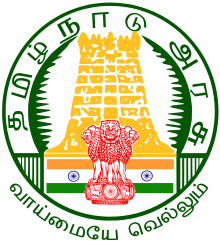Chennai
Chennai (/ˈtʃɛnaɪ/ (![]()
![]()
Chennai Madras | |
|---|---|
 Clockwise from top right: Chennai Central, Marina Beach, Madras High Court, TIDEL Park, Ripon Building, San Thome Basilica, Kapaleeshwarar Temple, Classical dance Bharata Natyam and Valluvar Kottam | |
| Nicknames: Gateway of South India, Detroit of South Asia,[1] India's Health Capital, City of Flyovers, Banking Capital of India | |
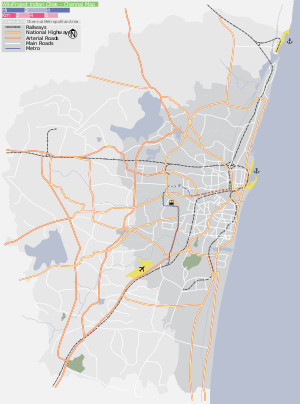 Chennai Location of Chennai in Tamil Nadu 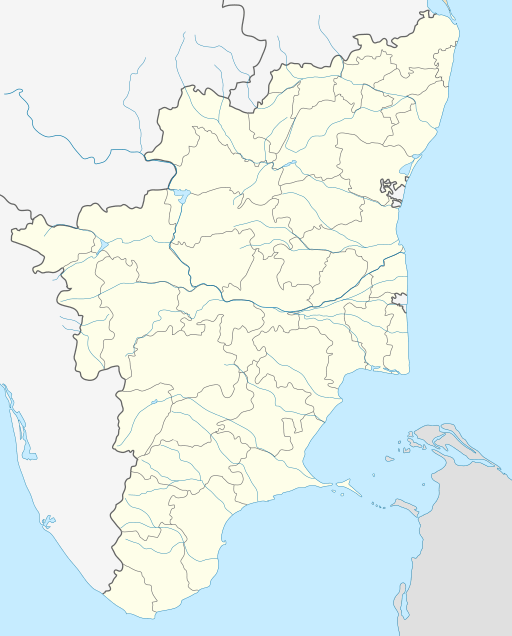 Chennai Chennai (Tamil Nadu)  Chennai Chennai (India) 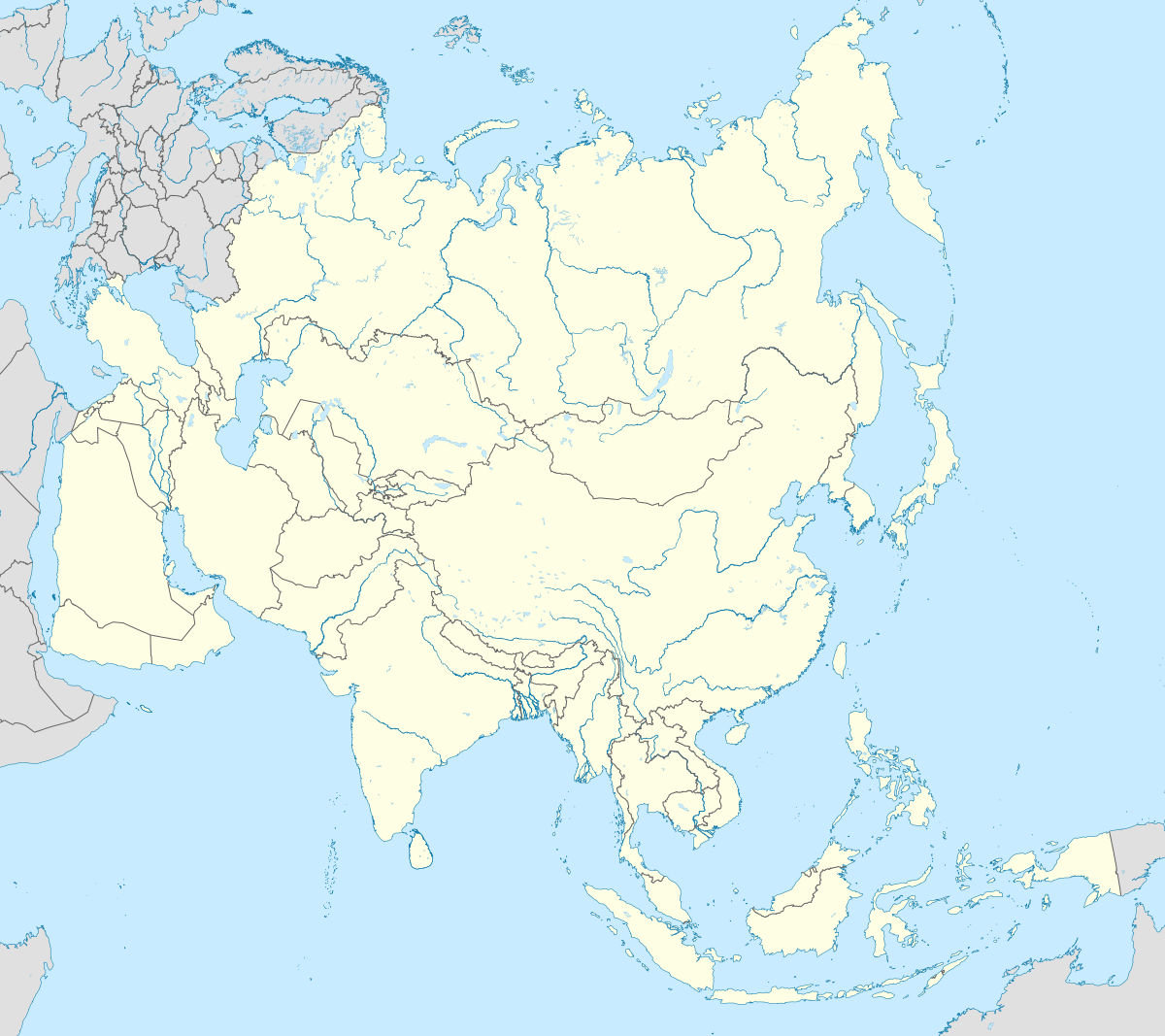 Chennai Chennai (Asia) | |
| Coordinates: 13°5′N 80°16′E | |
| Country | |
| State | |
| Region | Coromandel |
| District | Chennai district [upper-alpha 1] |
| Former name | Madras |
| Established | 1639 |
| Government | |
| • Type | Municipal Corporation |
| • Body | Greater Chennai Corporation |
| • Mayor | Vacant |
| Area | |
| • Metropolis | 426 km2 (164.5 Chennai city sq mi) |
| • Metro | 1,189 km2 (459.07 sq mi) |
| Elevation | 6 m (20 ft) |
| Population | |
| • Metropolis | 7,088,000 |
| • Rank | 6th |
| • Density | 17,000/km2 (43,000/sq mi) |
| • Metro | 8,653,521 8,917,749 (Extended UA)[8] |
| • Metro rank | 4th |
| Demonym(s) | Chennaiite |
| Languages | |
| • Official | Tamil |
| Time zone | UTC+05:30 (IST) |
| Pincode(s) | 600xxx |
| Area code(s) | +91-44 |
| Vehicle registration | TN-01 to TN-14, TN-18, TN-22, TN-85 |
| Metro GDP | $59–$66 billion[9] |
| Website | Chennai Corporation |
| |
Chennai had the third-largest expatriate population in India, at 35,000 in 2009, 82,790 in 2011 and estimated at over 100,000 by 2016.[17][18] Tourism-guide publisher Lonely Planet named Chennai as one of the top ten cities in the world to visit in 2015.[19] Chennai is ranked as a beta-level city in the Global Cities Index,[20] and was ranked the best city in India by India Today in the 2014 annual Indian city survey.[21][22] In 2015 Chennai was named the "hottest" city (city worth visiting and worth living in for long term) by the BBC, citing the mixture of both modern and traditional values.[23] National Geographic mentioned Chennai as the only South Asian city to feature in its 2015 "Top 10 food cities" list.[24] Chennai was also named the ninth-best cosmopolitan city in the world by Lonely Planet.[25] In October 2017, Chennai was added to the UNESCO Creative Cities Network (UCCN) list for its rich musical tradition.[26]
The Chennai Metropolitan Area is one of the largest municipal economies of India. Chennai is nicknamed "The Detroit of India",[1] with more than one-third of India's automobile industry being based in the city. Home to the Tamil film industry, Chennai is also known as a major film production centre. Chennai is one of the 100 Indian cities to be developed as a smart city under the Smart Cities Mission.[27]
Etymology
The name Chennai is of Telugu origin.[28][29][30] It was derived from the name of a Telugu ruler, Damarla Mudirasa Chennappa Nayakudu, father of Damarla Venkatapathy Nayak, a Nayak ruler who served as a general under Venkata III of the Vijayanagar Empire from whom the British acquired the town in 1639.[31][32] The first official use of the name Chennai is said to be in a sale deed, dated August 1639, to Francis Day of the East India Company, even before[33] the Chennakesava Perumal Temple was built in 1646,[34] while some scholars argue to the contrary.[35]
The name Madras is also of native origin, and has been shown to have been in use before the British established a presence in India.[36] A Vijayanagar-era inscription dated to the year 1367 that mentions the port of Mādarasanpattanam, along with other small ports on the east coast, was discovered in 2015 and it was theorised that the aforementioned port is the fishing port of Royapuram.[37] According to some sources, Madras is derived from Madraspattinam, a fishing village north of Fort St George.[38] However, it is uncertain whether the name was in use before the arrival of Europeans.[39] British military mapmakers believed Madras was originally Mundir-raj or Mundiraj, which was the name of a Telugu community, Mudiraj, who were the native inhabitants of the city.[40][41][42]
There are also suggestions that it may have originated from the Portuguese phrase Mãe de Deus or Madre de Dios, which means "mother of God", due to Portuguese influence on the port city, specifically referring to a Church of St. Mary.[43]
In 1996, the Government of Tamil Nadu officially changed the name from Madras to Chennai. At that time many Indian cities underwent a change of name.[44][45] However, the name Madras continues in occasional use for the city,[46] as well as for places named after the city such as University of Madras, IIT Madras, Madras Institute of Technology, Madras Medical College, Madras Veterinary College, Madras Christian College.
History

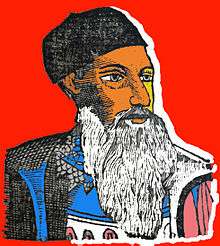
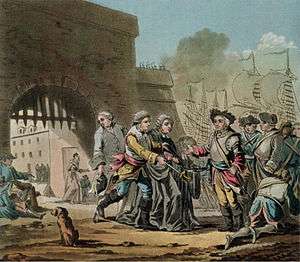
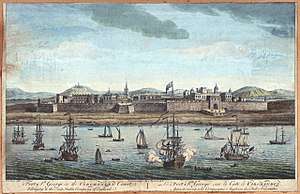
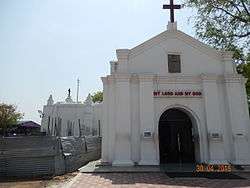
Stone age implements have been found near Pallavaram in Chennai. According to the Archaeological Survey of India (ASI), Pallavaram was a megalithic cultural establishment, and pre-historic communities resided in the settlement.[47]
The region around Chennai has served as an important administrative, military, and economic centre for many centuries. During the 1st century CE, a poet and weaver named Thiruvalluvar lived in the town of Mylapore (a neighbourhood of present Chennai).[48] From the 1st–12th century the region of present Tamil Nadu and parts of South India was ruled by the Cholas.[49]
The Pallavas of Kanchi built the areas of Mahabalipuram and Pallavaram during the reign of Mahendravarman I. They also defeated several kingdoms including the Cheras, Cholas and Pandyas who ruled over the area before their arrival. Sculpted caves and paintings have been identified from that period.[50] Ancient coins dating to around 500 BC have also been unearthed from the city and its surrounding areas. A portion of these findings belonged to the Vijayanagara Empire, which ruled the region during the medieval period.[51]
The Portuguese first arrived in 1522 and built a port called São Tomé after the Christian apostle, St. Thomas, who is believed to have preached in the area between 52 and 70 CE. In 1612, the Dutch established themselves near Pulicat, north of Chennai.[52]
On 20 August 1639 Francis Day of the East India Company along with the Nayak of Kalahasti Damarla Chennappa Nayakudu, travelled to the Chandragiri palace for an audience with the Vijayanager Emperor Peda Venkata Raya.[53] Day was seeking to obtain a grant for land on the Coromandel coast on which the Company could build a factory and warehouse for their trading activities. He was successful in obtaining the lease of a strip of land about 10 kilometres (6 mi) long and 1.6 km (1 mi) inland in return for a yearly sum of five hundred lakh pagodas.[54][55][56] On 22 August, he secured the land grant from local Nayak (Damarla Venkatadri Nayaka and his younger brother Aiyappa Nayaka of Poonamallee).[57][58] The region was then formerly a fishing village known as "Madraspatnam".[51] A year later, the Company built Fort St. George, the first major English settlement in India,[59] which became the nucleus of the growing colonial city and urban Chennai, grew around this Fort.[60] Post independence the fort housed the Tamil Nadu Assembly until the new Secretariat building was opened in 2010, but shortly afterwards it was again moved back to Fort St. George, due to a change in the Government.[61]
In 1746, Fort St. George and Madras were captured by the French under General La Bourdonnais, the Governor of Mauritius, who plundered the town and its outlying villages.[52] The British regained control in 1749 through the Treaty of Aix-la-Chapelle and strengthened the town's fortress wall to withstand further attacks from the French and Hyder Ali, the Sultan of Mysore.[62] They resisted a French siege attempt in 1759 under the leadership of Eyre Coote.[63] In 1769 the city was threatened by Mysore and the British were defeated by Hyder Ali, after which the Treaty of Madras ended the war.[64] By the 18th century, the British had conquered most of the region around Tamil Nadu and the northern modern–day states of Andhra Pradesh and Karnataka, establishing the Madras Presidency with Madras as the capital.[65]
.jpg)
Gradually, the city grew into a major naval base and became the central administrative centre for the British in South India.[66] With the advent of railways in India in the 19th century, the thriving urban centre was connected to other important cities such as Bombay and Calcutta, promoting increased communication and trade with the hinterland.[67] Sir Arthur Lawley was Governor of Madras from 1906 to 1911 and promoted modern agriculture, industry, railways, education, the arts and more democratic governance.[68] The Governor lived in Government House, Fort St George, and had a country home at Guindy, with access to a golf course, hockey pitches, riding stables and the Guindy Horse Racing Track.[69][70] In the First World War as Red Cross Commissioner in Mesopotamia, he looked after the welfare of Indian soldiers.[71] Madras was the only Indian city to be attacked by the Central Powers during World War I,[72] when an oil depot was shelled by the German light cruiser SMS Emden on 22 September 1914, as it raided shipping lanes in the Indian Ocean, causing disruption to shipping.[73]
After India gained its independence in 1947, the city became the capital of Madras State, which was renamed as Tamil Nadu in 1969.[74] The violent agitations of 1965 against the compulsory imposition of Hindi and in support of English in India in the state marked a major shift in the political dynamics of the city and eventually it had a big impact on the whole state. Because of Madras and its people, English now exists in India, otherwise Hindi might have been made the sole official language in India.[75] On 17 July 1996, the city known as Madras was officially renamed Chennai, in line with what was then a nationwide trend to using less Anglicised names.[76] On 26 December 2004, an Indian Ocean tsunami lashed the shores of Chennai, killing 206 people in Chennai and permanently altering the coastline.[77][78] The 2015 Chennai Floods submerged major portions of the city, killing 269 people and resulting in damages of ₹86.4 billion (US$1 billion).[79][80][81]
Environment
Geography
Chennai is located on the south–eastern coast of India in the north–eastern part of Tamil Nadu on a flat coastal plain known as the Eastern Coastal Plains. Its average elevation is around 6.7 metres (22 ft),[82] and its highest point is 60 m (200 ft).[83] Chennai is 2,184 kilometres (1,357 mi) south of Delhi, 1,337 kilometres (831 mi) southeast of Mumbai, and 345 kilometres (214 mi) east of Bangalore by road. Two major rivers flow through Chennai, the Cooum River (or Koovam) through the centre and the Adyar River to the south. A third river, the Kortalaiyar, travels through the northern fringes of the city before draining into the Bay of Bengal, at Ennore. The estuary of this river is heavily polluted with effluents released by the industries in the region.[84] Adyar and Cooum rivers are heavily polluted with effluents and waste from domestic and commercial sources, the Coumm being so heavily polluted it is regarded as the city's eyesore.[85][86] A protected estuary on the Adyar forms a natural habitat for several species of birds and animals.[87] The Buckingham Canal, 4 km (2.5 mi) inland, runs parallel to the coast, linking the two rivers. The Otteri Nullah, an east–west stream, runs through north Chennai and meets the Buckingham Canal at Basin Bridge. Several lakes of varying size are located on the western fringes of the city. Some areas of the city have the problem of excess iron content in groundwater.[88]
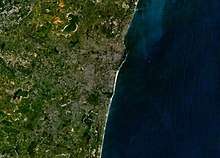
Chennai's soil is mostly clay, shale and sandstone.[89] Clay underlies most of the city, chiefly Manali, Kolathur, Maduravoyal, K. K. Nagar, Tambaram, Mudichur, Pallavaram Semmencherry, Alapakkam, Vyasarpadi and Anna Nagar. Sandy areas are found along the river banks and coasts, and include areas such as Tiruvottiyur, George Town, Madhavaram, New Washermanpet, Chepauk, Mylapore, Porur, Adyar, Besant Nagar and Uthandi. In these areas, rainwater runoff percolates quickly through the soil. Areas having hard rock surface include Guindy, Nanganallur, Pallikaranai, Alandur, Jaladampet, Velachery, Adambakkam and a part of Saidapet and Perungudi.[90][91] The ground water table in Chennai is at 4-5m below ground in most of the areas,[91] which was considerably improved and maintained through the mandatory rain water harvesting system.[92] Of the 24.87 km coastline of the city, 3.08 km experiences erosion, with sand accretion along the shoreline can be noticed at the Marina beach and the area between the Ennore Port and Kosasthalaiyar river.[93]
Geology
Chennai is classified as being in Seismic Zone III, indicating a moderate risk of damage from earthquakes.[94] Owing to the geotectonic zone the city falls in, the city is considered a potential geothermal energy site. The crust has granite rocks indicating volcanic activities in the past. It is expected that temperatures of around 200 to 300 C° will be available if the ground were drilled 4 to 5 km deep. The region has the oldest rocks in the country dating back to nearly a billion years.[95]
Flora and fauna
The southern stretch of Chennai's coast from Tiruvanmiyur to Neelangarai are favoured by the endangered olive ridley sea turtles to lay eggs every winter. A large number of cattle egrets, pond herons and other waterbirds can be seen in the rivers of Cooum and Adyar. About 75,000 birds migrate to Chennai every year.[96] Marshy wetlands such as Pallikaranai also play host to a number of migratory birds during the monsoon and winter.[97] Over 300 species of birds have been recorded in the city and its neighbourhood by members of Madras Naturalists' Society since its inception in 1978.
Guindy National Park is a protected area within the city limits. Wildlife conservation and research activities take place at Arignar Anna Zoological Park including olive ridley sea turtle conservation.[98] Madras Crocodile Bank Trust is a herpetology research station, located 40 kilometres (25 mi) south of Chennai.[99] The city's tree cover is estimated to be around 64.06 sq km.[100] The most dominant tree species is the copper pod, followed by Indian beech and Neem. A total of 121 species of trees belonging to 94 genera and 42 families are found in the city.[100] Nearly half of the native plant species in the city's wetlands have disappeared in recent years. The city, which had 85 percent of its area covered with aquatic plants until the 1970s, now has only 25 percent of its area covered with such plants.[101]
Environment conservation
Chennai has three rivers and many lakes spread across the city. Urbanization has led to shrinkage of water bodies and wetlands.[102] The quantity of wetlands in the city has decreased from 650 to only 27 currently.[103] The Chennai River Restoration trust set up by the government is working on the restoration of Adyar river.[104] Environmentalist Foundation of India is a volunteering group working towards wildlife conservation and habitat restoration.[105][106]
The encroachment of urban development on wetlands has gravely hampered the city's sustainability, and contributed both to the city's floods in 2015 and water scarcity crisis in 2019.[107]
Climate
Chennai has a dry-summer tropical wet and dry climate (Köppen climate classification: As). The city lies on the thermal equator[108] and is also on the coast, which prevents extreme variation in seasonal temperature. The hottest part of the year is late May to early June, known regionally as Agni Nakshatram ("fire star") or as Kathiri Veyyil,[109] with maximum temperatures around 35–40 °C (95–104 °F). The coolest part of the year is January, with minimum temperatures around 19–25 °C (66–77 °F). The lowest recorded temperature was 13.9 °C (57.0 °F) on 11 December 1895 and 29 January 1905.[110] The highest recorded temperature was 45 °C (113 °F) on 31 May 2003.[110] The average annual rainfall is about 140 cm (55 in).[111]
The city gets most of its seasonal rainfall from the north–east monsoon winds, from mid–October to mid–December. Cyclones in the Bay of Bengal sometimes hit the city. The highest annual rainfall recorded is 257 cm (101 in) in 2005.[112] Prevailing winds in Chennai are usually southwesterly between April and October[113] and north-easterly during the rest of the year. Historically, Chennai has relied on the annual rains of the monsoon season to replenish water reservoirs, as no major rivers flow through the area.[114] Chennai has a water table at 2 metres for 60 percent of the year.[115]
| Climate data for Chennai, India (Nungambakkam) 1981–2010, extremes 1901–2012 | |||||||||||||
|---|---|---|---|---|---|---|---|---|---|---|---|---|---|
| Month | Jan | Feb | Mar | Apr | May | Jun | Jul | Aug | Sep | Oct | Nov | Dec | Year |
| Record high °C (°F) | 34.4 (93.9) |
36.7 (98.1) |
40.6 (105.1) |
42.8 (109.0) |
45.0 (113.0) |
43.3 (109.9) |
41.1 (106.0) |
40.0 (104.0) |
38.9 (102.0) |
39.4 (102.9) |
35.4 (95.7) |
33.0 (91.4) |
45.0 (113.0) |
| Average high °C (°F) | 29.3 (84.7) |
30.9 (87.6) |
32.9 (91.2) |
34.5 (94.1) |
37.1 (98.8) |
37.0 (98.6) |
35.3 (95.5) |
34.7 (94.5) |
34.2 (93.6) |
32.1 (89.8) |
29.9 (85.8) |
28.9 (84.0) |
33.1 (91.6) |
| Daily mean °C (°F) | 25.2 (77.4) |
26.6 (79.9) |
28.7 (83.7) |
30.9 (87.6) |
32.9 (91.2) |
32.4 (90.3) |
30.9 (87.6) |
30.3 (86.5) |
29.8 (85.6) |
28.4 (83.1) |
26.5 (79.7) |
25.3 (77.5) |
29.0 (84.2) |
| Average low °C (°F) | 21.2 (70.2) |
22.2 (72.0) |
24.2 (75.6) |
26.6 (79.9) |
28.0 (82.4) |
27.5 (81.5) |
26.4 (79.5) |
25.9 (78.6) |
25.6 (78.1) |
24.6 (76.3) |
23.1 (73.6) |
21.9 (71.4) |
24.8 (76.6) |
| Record low °C (°F) | 13.9 (57.0) |
15.0 (59.0) |
16.7 (62.1) |
20.0 (68.0) |
21.1 (70.0) |
20.6 (69.1) |
21.0 (69.8) |
20.5 (68.9) |
20.6 (69.1) |
16.7 (62.1) |
15.0 (59.0) |
13.9 (57.0) |
13.9 (57.0) |
| Average rainfall mm (inches) | 25.9 (1.02) |
3.4 (0.13) |
3.5 (0.14) |
14.4 (0.57) |
34.2 (1.35) |
55.8 (2.20) |
103.8 (4.09) |
126.8 (4.99) |
147.7 (5.81) |
315.6 (12.43) |
399.9 (15.74) |
177.4 (6.98) |
1,382.9 (54.44) |
| Average rainy days | 1.4 | 0.8 | 0.3 | 0.8 | 1.8 | 4.0 | 6.5 | 7.7 | 7.3 | 10.9 | 11.5 | 5.8 | 58.8 |
| Average relative humidity (%) (at 17:30 IST) | 67 | 66 | 67 | 70 | 68 | 63 | 65 | 66 | 71 | 76 | 76 | 71 | 69 |
| Mean monthly sunshine hours | 232.5 | 240.1 | 291.4 | 294.0 | 300.7 | 234.0 | 142.6 | 189.1 | 195.0 | 257.3 | 261.0 | 210.8 | 2,848.5 |
| Mean daily sunshine hours | 7.5 | 8.5 | 9.4 | 9.8 | 9.7 | 7.8 | 4.6 | 6.1 | 6.5 | 8.3 | 8.7 | 6.8 | 7.8 |
| Source 1: India Meteorological Department (sun 1971–2000)[116][117][118][119] | |||||||||||||
| Source 2: Japan Meteorological Agency[120] | |||||||||||||
NE monsoon
The city of Chennai is located on the east coast of India, which is also known as the Coromandel Coast. Chennai is largely dependent on NE monsoon, since 65% of rains are received in this season. Cyclones and depressions are common features during the season. Cyclones, in particular, are especially unpredictable. They may even move towards Orissa, west Bengal, Bangladesh, and also Myanmar. The season between October and December is referred as the NE monsoon period.[121] Floods are common during this period. In 2015 Chennai received record-breaking rains since 1918, which caused massive floods.
The entire east coast is vulnerable to cyclones during the monsoon period. For example, in 2007 a major cyclone named "Cyclone Sidr" skipped Chennai and headed towards Bangladesh. The result was a failure of NE monsoon in Chennai, that particular year. Even in the past, there has been many occasions where cyclones had a great influence on the monsoon.
Land usage
As of 2018, the city had a green cover of 14.9 percent, against the World Health Organization recommendation of 9 square meters of green cover per capita in cities. The city had a built-up area of 71 percent. Waterbodies cover an estimated 6 percent of the total area, and at least 8 percent of the area has classified as open space.[122] As of 2017, the total volume of water harvested was 339 mcft and groundwater recharge was 170 mcft.[123]
Administration
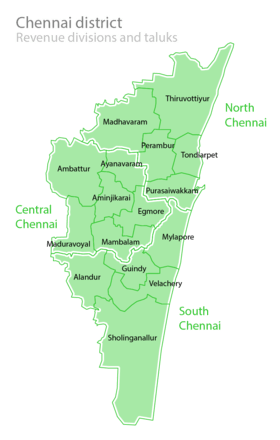
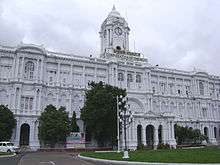
Chennai city is governed by the Greater Chennai Corporation (formerly "Corporation of Madras"), which was established in 1688. It is the oldest surviving municipal corporation in India and the second oldest surviving corporation in the world.[124][125] In 2011, the jurisdiction of the Chennai Corporation was expanded from 174 km2 (67 sq mi) to an area of 426 km2 (164 sq mi),[126] dividing into three regions—North, South and Central, which covers 200 wards.[127][128] The corporation is headed by a mayor, an office presently occupied by Saidai Sa. Duraisamy.[129][130] The Mayor and councillors of the city are elected through a popular vote by the residents.[131] While the city limit was expanded in 2011, the revised population is yet to be officially announced.
The Chennai Metropolitan Development Authority (CMDA) is the nodal agency responsible for planning and development of Chennai Metropolitan Area, which is spread over an area of 1,189 km2 (459 sq mi),[132] covering the Chennai district and parts of Tiruvallur, Kanchipuram and Chengalpattu districts. The larger suburbs are governed by town municipalities and the smaller ones are governed by town councils called panchayats. Under the gamut of the CMDA are 5 parliamentary and 28 assembly constituencies.[133][134] The CMDA has drafted an additional Master Plan that aims to develop satellite townships around the city. The city's contiguous satellite towns include Mahabalipuram in the south, Chengalpattu and Maraimalai Nagar in the southwest, and Sriperumpudur, Arakkonam, Kanchipuram and Tiruvallur to the west.[135]
Chennai, as the capital of the state of Tamil Nadu, houses the state executive and legislative headquarters primarily in the Secretariat Buildings in the Fort St George campus. The Madras High Court, is the highest judicial authority in the state, whose jurisdiction extends across Tamil Nadu and Puducherry.[136] Chennai has three parliamentary constituencies—Chennai North, Chennai Central and Chennai South—and elects 24 Members of the Legislative Assembly (MLAs) to the state legislature.[137]
Law and order
The Greater Chennai Police is the main law enforcement agency in the city, with a jurisdiction of over 745 km2 (288 sq mi) catering to over 8.5 million people. It consists of 121 police stations and is headed by a commissioner of police. The Greater Chennai Police is a division of the Tamil Nadu Police, and the administrative control lies with the Tamil Nadu Home Ministry.[138] Chennai City Traffic Police (CCTP) is responsible for the traffic management in the city. The metropolitan suburbs are policed by the Chennai Metropolitan Police, headed by the Chennai Police Commissionerate, and the outer district areas of the CMDA are policed by the Kanchipuram and Thiruvallur police departments.[139][140][141]

As of 2011 (prior to the expansion of Chennai Corporation area), Chennai city has a sanctioned strength of 14,000 police personnel. With a population density of 26,903 persons per square kilometre, the city had 1 policeman for every 413 people. The Chennai suburban police had about 4,093 police personnel and a ratio of 1:1,222.[142] In 2010, the crime rate in the city was 169.2 per 100,000 people, as against an average of 341.9 in the 35 major cities of India.[143] In 2011, North Chennai zone had 30 police stations and 3 police out posts, Central Chennai zone had 28 police stations and 3 police out posts, and South Chennai zone had 30 police stations.[144]
In 2009, Madras Central Prison, one of the oldest prisons in India, built over 11 acres (4 ha) of land, was demolished; the prisoners were moved to Puzhal Central Prison.[145]
Politics
Since the 19th century, when Western scholars proposed that Dravidian languages, which dominated the southern region of India, formed a different linguistic group to that of the Indo-Aryan languages that are predominant in the north of the subcontinent, the aspects of Tamil nationalism gained prominence. This resulted in the Anti-Hindi agitations in the city and across the state. However, the post-Independence re-organisation of Indian states according to linguistic and ethnic basis has moderated Tamil nationalism, especially the demand for separation from the Indian Union. The Anti-Hindi agitations in mid-1960s made the DMK more popular and more powerful political force in the state. The agitations of the 1960s played a crucial role in the defeat of the Tamil Nadu Congress party in the 1967 elections and the continuing dominance of Dravidian parties in Tamil Nadu politics.[146]
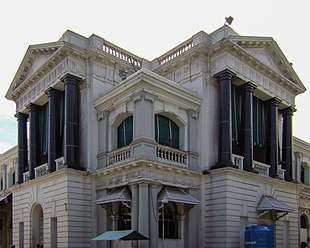
Being the capital of the Madras Province that covered a vast area of the Deccan region, Chennai remained the centre of politics in the southern region of India during the British colonial era. After Independence, it remained the centre of political activities of the state of Tamil Nadu. Chennai is the birthplace of the idea of the Indian National Congress, commonly known as the Congress Party. Founded by Indian and British members of the Theosophical Society movement, most notably A.O. Hume,[147] the idea was originally conceived in a private meeting of 17 men after a Theosophical Convention held in the city in December 1884.[148] During the first 50 years of the Indian National Congress, the city played host to its conferences seven times in 1887, 1894, 1898, 1903, 1908, 1914 and 1927, becoming one of the strong bases for the Indian independence movement. After independence, the city hosted the Congress in 1955 in its suburb of Avadi.[149]
Chennai is also the birthplace of several regional political movements since the British era. South Indian Welfare Association, one of the earliest regional parties, was founded in 1916, which later came to be known as the Justice Party, which was the main opposition party to the Indian National Congress in the state.[150][151] In 1944, the party was renamed Dravidar Kazhagam (DK) by E. V. Ramasami (popularly known as 'Periyar'). The party was a non-political party that demanded the establishment of an independent state called Dravida Nadu.[152] However, due to the differences between its two leaders Periyar and C. N. Annadurai, the party was split. Annadurai left the party to form the Dravida Munnetra Kazhagam (DMK). The DMK decided to enter into politics in 1956.
Utility services
The city's water supply and sewage treatment are managed by the Chennai MetroWater Supply and Sewage Board. Water is drawn from Red Hills Lake and Chembarambakkam Lake, the primary water reservoirs of the city,[153] and treated at water treatment plants located at Kilpauk, Puzhal, Chembarambakkam[154] and supplied to the city through 27 water distribution stations.[155] The city receives 530 million liters per day (mld) of water from Krishna River through Telugu Ganga project, 180 mld of water from the Veeranam lake project[154] and 100 mld of water from the Minjur desalination plant, the country's largest sea water desalination plant.[156][157][158] However, Chennai is predicted to face a huge deficit of 713 mld in 2026 as the demand is projected at 2,248 mld and supply estimated at only 1,535 mld.[159] The city's sewer system was designed in 1910, with some modifications in 1958.[160] There are 714 public toilets in the city managed by the city corporation,[161] and 2,000 more have been planned by the corporation.[162] The corporation also owns 52 community halls across the city.[163]
The Corporation of Chennai provides civic services to the city. Garbage collection in some of the wards is contracted to Ramky Enviro Engineers Limited, a private company,[164] while the Corporation looks after the removal and processing of solid waste in the others,[165] with a superintendent engineer managing the channels. As of 2011, eight transfer stations exist within the city for treating the waste.[166] Garbage is dumped in two dump-yards in the city—One in Kodungaiyur and another in Pallikaranai, with a major portion of the latter covering the Pallikaranai marshland.[167] In market areas, the conservancy work is done during the night.[168] Electricity is distributed by the Tamil Nadu Electricity Board.[169] Fire services are handled by the Tamil Nadu Fire and Rescue Services.[170] The city, along with the suburbs, has 33 operating fire stations.[171]
The Chennai City region has 568 post offices, of which nearly 460 operate from rented premises.[172]
Architecture
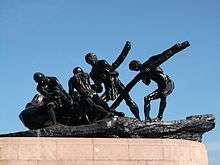
With the history of many neighbourhoods of the city such as Mylapore, Triplicane, and Tiruvanmiyur antedating that of the city, the architecture of Chennai ranges in a wide chronology. The oldest buildings in the city dates from the 7th and 8th centuries CE, which include the Kapaleeshwarar Temple in Mylapore and the Parthasarathy Temple in Triplicane, built in the Dravidian architecture. This architecture includes various styles, such as those of the Pallavas, the Cholas, and the Vijayanagara empires. The associated Agraharam architecture, which consists of traditional row houses surrounding a temple, can still be seen in these areas.[173][174] The heritage temples at Mamallapuram at the outskirts of the city are some of the examples of the Pallava architecture. Chennai ranks second to Kolkata of Indian heritage buildings.[175]
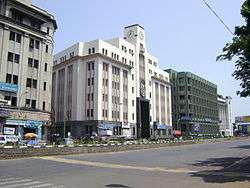
With the advent of the Mugals and the British, the city saw a rise in a blend of Hindu, Islamic and Gothic revival styles, resulting in the distinct Indo-Saracenic style.[176] The architecture for several early institutions such as banking and commerce, railways, press and education, chiefly through the colonial rule, followed the earlier directions of the Neo-Classical and the Indo-Saracenic.[177] The Chepauk Palace in the city, designed by Paul Benfield, is said to be the first Indo-Saracenic building in India.[178] Since then, many of the colonial-era buildings in the city were designed in this style of architecture, which is most apparent around the Fort St. George built in 1640. Most of these were designed by English architects Robert Fellowes Chisholm and Henry Irwin. The best examples of this style include the Madras High Court (built in 1892), Southern Railway headquarters, Ripon Building, Government Museum, Senate House of the University of Madras, Amir Mahal, Bharat Insurance Building, Victoria Public Hall and the College of Engineering.[179] The Triumph of Labour, also known as the Labour statue, at the Marina Beach is an important landmark of Chennai.[180]
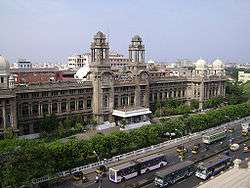
The construction of the National Art Gallery in Madras was completed in 1909. The new building, with a stunning façade, was built of pink sandstone brought from Sathyavedu, and formed part of the Madras Museum campus. It was opened, on 23 January 1909, by the Governor of Fort St. George, Sir Arthur Lawley, and called the Victoria Memorial Hall after the Queen-Empress Victoria.[181][182][183] The residential architecture in the city was based on the bungalow or the continuous row house prototypes.[177] Gothic revival style buildings include the Chennai Central and Chennai Egmore railway stations. The Santhome Church, which was originally built by the Portuguese in 1523 and is believed to house the remains of the apostle St. Thomas, was rebuilt in 1893 in neo-Gothic style.[184]
By the early 20th century, the art deco too made its entry upon the city's urban landscape. From the 1930s onwards, many buildings in George Town were built in this style, including the United India building (presently housing LIC) and the Burma Shell building (presently the Chennai House), both built in the 1930s, and the Dare House, built in 1940. Other examples include the Bombay Mutual building (presently housing LIC) and the South Indian Chamber of Commerce building.[177] After Independence, the city witnessed a rise in the Modernism style of architecture.[177] The completion of the LIC Building in 1959, the tallest building in the country at that time,[185] marked the transition from lime-and-brick construction to concrete columns in the region.[186] The presence of the weather radar at the Chennai Port, however, prohibited the construction of buildings taller than 60 m around a radius of 10 km for several decades that followed.[187] In addition, the floor-area ratio (FAR) in the central business district is also 1.5, much less than that of smaller cities of the country. This resulted in the city expanding horizontally, unlike other metropolitan cities where vertical growth is prominent. On the contrary, the peripheral regions, especially on the southern and south-western sides, are experiencing vertical growth with the construction of buildings up to 60 floors.
Demographics
Population
| Population of Chennai city | |||
|---|---|---|---|
| Census | Population | %± | |
| 1791 | 300,000 | — | |
| 1871 | 367,552 | — | |
| 1881 | 405,848 | 10.4% | |
| 1891 | 452,518 | 11.5% | |
| 1901 | 509,346 | 12.6% | |
| 1911 | 518,660 | 1.8% | |
| 1921 | 526,911 | 1.6% | |
| 1931 | 647,232 | 22.8% | |
| 1941 | 777,481 | 20.1% | |
| 1951 | 1,416,056 | 82.1% | |
| 1961 | 1,729,141 | 22.1% | |
| 1971 | 2,469,449 | 42.8% | |
| 1981 | 3,266,034 | 32.3% | |
| 1991 | 3,841,396 | 17.6% | |
| 2001 | 4,343,645 | 13.1% | |
| 2011 | 7,088,000 | 63.2% | |
| Sources: * 1639–1791:[188] * 1871–1901:[189] * 1871–1931:[190] * 1931–1951:[191] * 1951–1961:[192] * 1991–2001:[193] * 2001:[194] 2011:[5] | |||
A resident of Chennai is called a Chennaite.[195][196][197] According to 2011 census, the city had a population of 4,646,732, within the area administered by the Municipal Corporation;[198] that had 11 lakh households, with 51% of them living in rented houses.[199] The city's limits were expanded later in 2011 and its population reached 7,088,000[5] with Chennai Municipal Corporation being renamed as Greater Chennai Corporation.[5]
As of 2019, 712,000 families live below poverty line, which is about 40 percent of the 1.788 million families in the city.[200]
Languages
Tamils form the majority of Chennai's population. English is spoken largely by white-collar workers,[201] often mixed into Tamil.[202] In 2001, out of the 2,937,000 migrants (33.8% of its population) in the city, 61.5% were from other parts of the state, 33.8% were from rest of India and 3.7% were from outside the country.[203] As per the 2001 census, the number of speakers mother tongue wise are as follows, Tamil is spoken by 3,424,107 (78.8%), followed by Telugu by 419,209 (9.7%), Urdu by 180,245 (4.1%), Malayalam by 113,828 (2.6%), Hindi by 104,084 (2.4%), and Kannada by 22,250 (0.5%).[204] Korean, Japanese, French, Mandarin Chinese, Russian, German and Spanish are some of the languages spoken by the 250,000 foreign expatriates residing in the city.[205][206][207][208][209]
Religion and ethnicity
Chennai, along with Bengaluru, Mumbai and Delhi, is one of the few Indian cities that are home to a diverse population of ethno-religious communities.[211] Minorities include Telugus, Marwaris, Gujaratis, Parsis,[212][213] Sindhis,[214][215] Odias,[216] Goans,[217] Kannadigas,[218] Anglo-Indians,[219] Bengalis,[220] Punjabi,[221] and Malayalees. As per the religious census of 2011, Chennai's population was 80.73% Hindu, 9.45% Muslim, 7.72% Christian, 1.11% Jain, 0.06% Sikh, 0.06% Buddhist, <0.04% followed other religions and 0.83% followed no religion or did not indicate any religious preference.[210]
Housing
In a 2013 survey titled 'Emerging trends in real estate in Asia Pacific 2014', Chennai emerged in the top 25 real estate destinations list in the Asia Pacific region. The city ranked 22nd in the list.[222] There are about 1,240 slums in Chennai home to about 900,000 people.[223]
Per 2011 census, there are 1.1 million households in the city and the residential housing stock available is 1,150,000 – a surplus of about 50,000 houses. About 43,700 of them are kept vacant. In the suburbs of Chennai located in Tiruvallur and Kancheepuram districts, the figures of vacant houses 56,000 and 71,000, respectively. Of the existing housing stock in the city, about 200,000 houses are not in good condition, necessitating either to rebuild or build new units. About 26,000 households live in houses without any room and another 427,000 families (with an average size of five members) live in small dwelling units with only one room. An earlier estimate shows that there is a need to generate about 420,000 units for low-income groups by 2016.[224]
As of 2012, an estimated population of 11,116 (0.16 percent) were homeless. Per Supreme Court guidelines, the city needs 65 shelters for the homeless. However, it has only 15, of which eight are functioning and two are under renovation.[225]
As of 2017, there are more than 2.2 million households, with 40 percent of the residents not owning a house.[226]
Arts and culture
Museums and art galleries
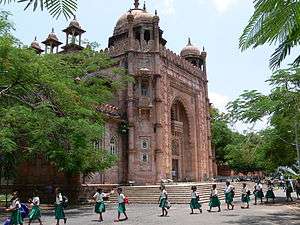
Chennai is home to many museums, galleries, and other institutions, many of which are free of admission charges and are major tourist attractions as well as playing a research role.[227] The city also has one of the oldest museums and art galleries in the country – Government Museum, Chennai and The National Art Gallery (Chennai),[228] established in the early 18th century.[229]
The city also hosts two art festivals annually. The "Fort Museum" inside the premises of Fort St. George is an important museum having a noteworthy collection of objects of the British era in its collection.[230] The museum is managed by the Archaeological Survey of India and has in its possession, the first Flag of India hoisted at Fort St George after the declaration of India's Independence on 15 August 1947.[231]
Music and performing arts
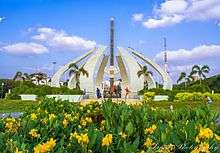
Chennai is a major centre for music, art and culture in India.[232] The city is known for its classical dance shows. In 1930, for the first time in India, Madras University introduced a course of music, as part of the Bachelor of Arts curriculum.[233] The Madras Music Season, initiated by Madras Music Academy in 1927, is celebrated every year during the month of December.[234] It features performances of traditional Carnatic music by many artists in and around the city.[235] The main folk music in Chennai is Gaana, a combination of various folk musics sung mainly sung in the working-class area of North Chennai.[236]
An arts festival called the Chennai Sangamam, which showcases not only various art of Tamil Nadu, but also from the neighbouring states, like kalari (from Kerala), which is a major attraction, is held in January every year. The Speciality of Chennai Sangamam is that the various programmes are held near or at the various famous landmarks in the city so that everyone in the city has access to the programmes and there is no fee charged for entry for any of the programmes.[237] Pookolam, a form of art that uses coloured flour to create patterns and designs, comes from Kerala, but can be seen in abundance at the time of Onam.[238]
The city has a diverse theatre scene and is one of the important centres for Bharata Natyam, a classical dance form that originated in Tamil Nadu and is the oldest dance of India.[239] An important cultural centre for Bharata Natyam is Kalakshetra, on the beach in the south of the city.[240] In 2012, a group of five Bharatha Natyam dancers from Chennai performed at the India Campaign during the 2012 Summer Olympics.[241] Chennai has been featured in UNESCO Creative Cities Network (UCCN) list since October 2017 for its century-old musical tradition.[26] Chennai is also home to some choirs, who during the Christmas season stage various carol performances across the city in Tamil and English.[242][243]
Cityscape
Chennai is divided into four broad regions: North, Central, South, and West. North Chennai is primarily an industrial area. South Chennai and West Chennai, previously mostly residential, are fast becoming commercial, home to a growing number of information technology firms, financial companies and call centres. The city is expanding quickly along the Old Mahabalipuram Road and the Grand Southern Trunk Road (GST Road) in the south and towards Ambattur, Koyambedu and Sriperumbdur in the west.[244] Central Chennai comprises residential elements, but is primarily home to the downtown area, and surrounding areas, the most visited by travellers to the city. The financial district is also located here.[245]
Economy
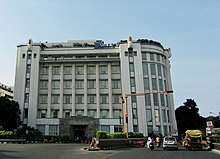
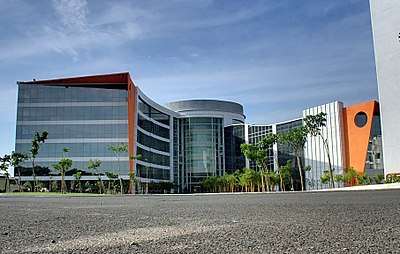
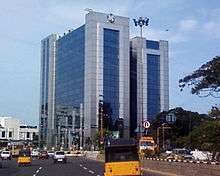
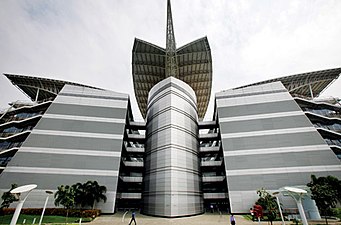
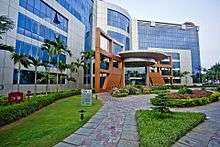
Recent estimates of the economy of the entire Chennai Metropolitan Area range from $78.6 to $86 billion (PPP GDP), ranking it from fourth- to sixth-most productive metro area of India.[9] Chennai has a broad industrial base in the automobile, computer, technology, hardware manufacturing and healthcare sectors. As of 2012, the city is India's second-largest exporter of information technology (IT) and business process outsourcing (BPO) services.[246][247] A major part of India's automobile industry is located in and around the city thus earning it the nickname "Detroit of India".[1][248][249][250] It is known as the Cultural Capital of South India[251] and is the third-most visited city in India by international tourists according to Euromonitor.[12] The city also serves as the location of the Madras Stock Exchange, India's fourth stock exchange, one of four permanently recognised by SEBI, and India's third-largest by trading volume, ranked behind the Bombay Stock Exchange and the National Stock Exchange of India.[252]
Industrialisation in the city dates back to the 16th century, when textile mills manufactured goods which were exported to British during its war with France. According to Forbes magazine, Chennai is one of the fastest-growing cities in the world and is ranked among the "Forbes-Top 10 Fastest Growing Cities in the World".[253] It is ranked 4th in hosting the maximum number of Fortune 500 companies of India, next only to Mumbai, Delhi and Kolkata. It also is home to 24 Indian companies having a net worth of more than US$1 billion. As of 2012, the city has about 34,260 identified companies in its 15 zones, of which 5,196 companies have a paid-up the capital of over ₹ 50 lakh.[254]
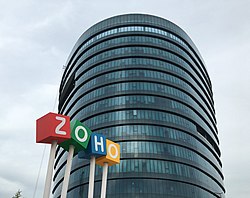
Chennai has a diversified economic base anchored by the automobile, software services, hardware manufacturing, health care and financial services industries.[246] According to the Confederation of Indian Industry, Chennai is estimated to grow to a US$100 billion economy, 2.5 times its present size, by the year 2025.[255] As of 2012, with ₹ 1 lakh crore investment in the pipeline over 5 years, the city is poised for major industrial investment.[256] Chennai is classified as a global city by GaWC, with a ranking of Beta[257] based on the extent of global reach and financial influence.[258] It is estimated that about 400 financial industry businesses are headquartered in the city,[259] half of which are located in the areas of Mylapore, R. A. Puram, Nungambakkam and T. Nagar.[260]
The city is base to around 40 percent of India's automobile industry and 45 percent of auto components industry.[261] A large number of automotive companies including Royal enfield, Hyundai, Renault, Robert Bosch, Nissan Motors, Ashok Leyland, Yamaha Motor, Daimler AG, Caterpillar Inc., Komatsu Limited, BharatBenz, Ford, BMW and Mitsubishi have manufacturing plants in Chennai.[262] The Heavy Vehicles Factory at Avadi produces military vehicles, including India's main battle tank: Arjun MBT.[263] The Integral Coach Factory manufactures railway coaches and other rolling stock for Indian Railways.[264] The Ambattur–Padi industrial zone houses many textile manufacturers, and a special economic zone (SEZ) for apparel and footwear manufacturing has been set up in the southern suburbs of the city.[265] Chennai contributes more than 50 percent of India's leather exports.[266]
Many software and software services companies have development centres in Chennai, which contributed 14 percent of India's total software exports of ₹ 14,42,140 lakh during 2006–07, making it the second largest Indian city software exporter following Bangalore.[246] The Tidel Park in Chennai was billed as Asia's largest IT park when it was built.[267][268] Major software companies have their offices set up here, with some of them making Chennai their largest base.[247]
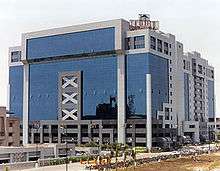
Prominent financial institutions, including the World Bank, Standard Chartered Bank, ABN AMRO, Bank of America, The Royal Bank of Scotland, Goldman Sachs, Barclays, HSBC, ING Group, Allianz, Sumitomo Mitsui Banking Corporation, The Bank of Tokyo-Mitsubishi UFJ, Abu Dhabi Commercial Bank, Asian Development Bank, Credit Suisse, BNP Paribas Fortis, Irevna, Deutsche Bank and Citibank have back office and development centre operations in the city.[269] Chennai is home to the national level commercial banks Indian Bank[270] and Indian Overseas Bank[271][272] and many state level co–operative banks, finance and insurance companies. Telecom and Electronics manufacturers based in and around Chennai include Samsung, Nokia Siemens, Motorola, Lenovo, Dell, Force10, Wipro, Flextronics and Siemens among others. Chennai is currently the largest electronics hardware exporter in India, accounting for 45% of the total exports in 2010–11.[273] Telecom giants Ericsson and Alcatel-Lucent, pharmaceuticals giant Pfizer and chemicals giant Dow Chemicals have research and development facilities in Chennai. The TICEL bio–tech park at Taramani[274] and Golden Jubilee bio–tech park at Siruseri[275] houses biotechnology companies and laboratories. Chennai has a stock exchange called the Madras Stock Exchange.[276][277]
A study conducted by the National Housing Bank on the residential price index of Indian cities showed that Chennai experienced the highest growth after the financial crisis of 2007–2008.[278] Medical tourism is an important part of Chennai's economy with 45 percent of total medical tourists to India making to Chennai.[279] The Tamil film industry[280] and the Tamil television industry are also significant parts of Chennai's economy. The city also has a permanent exhibition complex in Nandambakkam called the Chennai Trade Centre.[281] It hosted the Tamil Nadu Global Investors Meet in 2019 which was a business summit organised by the Government of Tamil Nadu.[282] With 385 ultra-rich living in the city as of 2013, Chennai is positioned in the sixth place among Indian cities that are home to the country's super-rich.[283] The city is the third largest market in India for luxury cars.[284]
Banking and finance
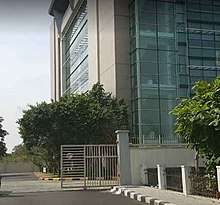
The Reserve Bank of India ranked Chennai as third-largest deposit centre and third-largest credit centre nationwide as of June 2012. Prior to the advent of modern commercial banks, the banking services in the city were offered to the public by Nattukottai Chettiars or Nagarathars, chiefly in and around the neighbourhood of George Town, who offered loans as well as accepted money deposits from the public, in addition to offering loans to the agricultural labourers. Even today, many of the banking offices are housed in heritage structures belonging to the colonial era that are chiefly clustered around Rajaji road in George Town.[285] Chennai is home to the first European-style banking system in India with the establishment of the 'Madras Bank' on 21 June 1683, almost a century before the establishment of the first commercial banks, such as the Bank of Hindustan and the General Bank of India, which were established in 1770 and 1786, respectively.[286] Upon the recommendation of the British Finance Committee on the formation of a government bank, the Madras Bank, then known as the 'Government Bank', started functioning again from 1806. In 1843, the bank merged with the Carnatic Bank (1788), the British Bank of Madras (1795) and the Asiatic Bank (1804) and became the Bank of Madras, which was one of the three Presidency banks of India, the other two being the Bank of Bengal and the Bank of Bombay. In 1921, the three Presidency banks merged to form the Imperial Bank of India, which later became the State Bank of India in 1955.[287]
Chennai is the headquarters of the Indian Bank, the Indian Overseas Bank and the erstwhile Bharat Overseas Bank, which merged with the Indian Overseas Bank in 2007.[288] The city is home to the south zonal office of the Reserve Bank of India, the country's central bank, along with its zonal training centre and Reserve Bank Staff College, one of the two colleges of the bank.[289] The city also houses the permanent back office of the World Bank, which is one of the largest buildings owned by the bank outside its headquarters in Washington, DC.[290] The Chennai office handles corporate financial, accounting, administrative and IT services of the bank, in addition to several value-added operations of the bank that were earlier handled only in its Washington, DC office, including the bank's analytical work in bond valuation which is estimated to be US$100 billion.[291] Several foreign banks have established their branches in the city. The first Sri Lankan Bank in India was established when the Bank of Ceylon opened its branch in Madras on 31 October 1995.[292]
Infrastructure
As of 2019, the city corporation maintains about 471 bus route roads and 33,0000 interior roads.[293]
Communication
Chennai is one of four Indian cities connected to the rest of the world by undersea fibre-optic cables, the other three being Mumbai, Kochi, and Tuticorin. The city is the landing point of major submarine telecommunication cable networks such as SMW4 (connecting India with Western Europe, Middle East and Southeast Asia), i2i (connecting India with Singapore), TIC (connecting India with Singapore), and BRICS (connecting India with Brazil, Russia, China and South Africa). The 3,175-km-long, 8-fiber-paired i2i has the world's largest design capacity of 8.4 terabits per second.[294][295][296][297] Work to lay a 2,300-km undersea optical submarine cable connecting Andaman and Nicobar Islands to mainland India through Chennai, carrying 100 Gb/sec optical waves, is slated to begin in December 2019 and completed by March 2020. It will connect Port Blair and the islands of Havelock, Little Andaman (Hutbay), Car Nicobar, Kamorta, Great Nicobar, Long Island and Rangat with Indian mainland.[298]
As of 2013, eight mobile phone service companies operate seven GSM networks including Airtel, Aircel, BSNL, Vodafone, Tata Docomo GSM, Idea, Reliance GSM and three CDMA networks including MTS, Relaince CDMA, Tata Docomo CDMA in the city. 2G Mobile internet connections are provided by all the operators and 4G, 3G mobile broadband are provided by few operators in the city. There are four land line companies[299][300] providing Commercial and domestic broadband Internet services. Chennai was the first Indian city to deploy Wi-Fi internet access in a widespread manner.[301] As of 2010, there were 9.8 million mobile phone users in Chennai.[302] In 2010, Chennai had the fourth highest number of active Internet users in India, with 2.2 million users.[303] As of 2018, the city topped in broadband speed among Indian cities, with a recorded download speed of 32.67 Mbit/s.[304]
Power
Major power plants in the city include North Chennai Thermal Power Station, GMR Vasavi Diesel Power Plant, Ennore Thermal Power Station, Basin Bridge Gas Turbine Power Station, Madras Atomic Power Station and Vallur Thermal Power Project. According to the Tamil Nadu Generation and Distribution Corporation Limited (TANGEDCO), as of 2013, the city consumes about 20 percent of the electricity in the state of Tamil Nadu. The peak evening demand of the city is 1,500 MW which is about 50 percent of the state's peak evening demand of 3,000 megawatt. This includes 37 percent consumption by the industrial sector, 30 percent by the domestic sector, 18 percent by the agricultural sector, and 11.5 percent by the commercial sector. The peak power consumption is for four months between May and August, with the city consuming the highest during June because it is when the summer peaks. On 20 June 2013, the city consumed the highest of 52,785 MU.[305]
As of 2014, the city consumes around 3.83 crore units of power a day or 1,400 crore units annually. Hourly consumption of power in the city is about 2,000 to 3,000 MW.[306] Availability of power in the city has become a concern in recent years due to increasing demand and slow paced addition of power plants, due to which scheduled power cuts have become increasingly common. However, this situation was eradicated by the end of 2014.[307][308] As of 2016, the total electricity consumption by the street lamps in the city is 27 MW, costing about ₹ 60,000,000 per month.[309] The 426 sq km of the city has over 248,000 streetlights, including 88,000 in the newly expanded areas.[310]
Health care
Chennai has world-class medical facilities, including both government-run and private hospitals. The government-aided hospitals include General Hospital, Adyar Cancer Institute, TB Sanatorium, and National Institute of Siddha. The National Institute of Siddha is one of the seven apex national-level educational institutions that promote excellence in Indian system of medicine and Ayurveda.[311] Major hospitals in Chennai include Apollo Hospitals, Apollo Speciality Hospital, SRM Medical College Hospital and Research Centre, Chettinad Health City, MIOT Hospitals, Sri Ramachandra Medical College and Research Institute, Fortis Malar Hospital, Lifeline Hospitals, Vasan Healthcare, Dr Mehta Hospitals, Global Hospitals & Health City, Sankara Nethralaya and Vijaya Medical & Educational Trust.[312] Chennai attracts about 45 percent of health tourists from abroad and 30 percent to 40 percent of domestic health tourists. The city has been termed India's health capital.[313][314][315]
The city has more than 12,500 beds in its hospitals,[316] including about 5,000 in multi-specialty hospitals in the private sector and over 6,000 beds in the public sector.[317] This works to 2.1 beds per 1,000 population against the national average of less than one bed per 1,000 population and the World Health Organization's norms of three beds per 1,000 persons, higher than any other city in the country.
Waste management
The city generates 4,500 tonnes of garbage every day of which 429 tonnes are plastic waste.[318] The city has three dumpyards, one each at Perungudi, Kodungaiyur, and Pallikaranai. The corporation has planned to close these yards and create four new dumpyards at Malaipattu, Minjur, Vallur and Kuthambakkam villages, ranging in size from 20 acres (8 ha) to 100 acres (40 ha).[319][320] The civic body also spends ₹ 400 crore a year on solid-waste management.[321]
Tourism and hospitality
With temples, beaches and centres of historical and cultural significance, including the UNESCO Heritage Site of Mahabalipuram, Chennai is one of the most-visited cities in India. The city serves as the gateway to the southern part of India with tourists landing in the city and then visiting the rest of the region. Chennai was the most-visited Indian city by foreign tourists in 2009 and issued the third-highest number of visas on arrival in 2014.[322][323] In 2011, Chennai was ranked the 41st-most visited city, with 3,174,500 tourists, a 14 percent increase from 2010.[324] About 830,620 domestic tourists arrived in Chennai in March 2011.[313] Chennai's leading tourist countries-of-origin are Sri Lanka, Malaysia, Singapore, the United Kingdom, France and the United States. In 2015, the city received 4,243,700 foreign tourists, making it the third-most-visited city in India after Delhi and Mumbai and 43rd-most visited city in the world by foreign tourists.[12] As of 2012, the city had 21 luxury hotels in the five-star category, with over 4,500 rooms in the inventory.[325]
Entertainment
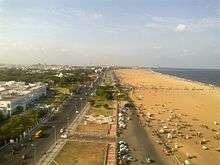
Chennai is the base for Tamil cinema, sometimes nicknamed as Kollywood, alluding to the neighbourhood of Kodambakkam where a number of film studios are located. Many film personalities have gone on to become politicians including C. N. Annadurai, M. Karunanidhi, M. G. Ramachandran and Jayalalithaa.[326] Chennai hosts major film studios, including AVM Productions, the oldest surviving studio in India.[327] As of 2012, there are 120 cinema screens and multiplexes. Major multiplexes include Sathyam Cinemas, Escape cinemas, Devi, Abirami complex and Mayajaal.[328] Chennai's expansive theatre network stages many Tamil plays of many genres: political satire, slapstick comedy, history, mythology and drama.[329][330][331] English plays are popular in the city, along with the more common Tamil-language plays.[332]
Recreation
The zoo, beaches and wildlife parks form the primary recreation areas of the city. Chennai has a 19+ km coastline. Marina Beach spans 6 km (3.7 mi) between the deltas of Cooum and Adyar, and is the second-longest urban beach in the world.[333] Elliot's Beach lies south of the Adyar delta. Covelong Beach lies along the Coromandal Coast.[334] Madras Crocodile Bank Trust is a reptile zoo located 40 kilometres (25 mi) south of the city covering an area of 8.5 acres (3.4 ha) and had over 450,000 visitors in 2007. The center has one of the world's largest collections of reptiles and has bred 14 of the 23 existing species of crocodiles and alligators.[335] The Arignar Anna Zoological Park, one of the largest zoological parks in the world, annually attracts nearly 2 million visitors.[336] The city boasts two popular beaches, the Marina and Elliot's. Guindy National Park, a protected area of Tamil Nadu, has a children's park and a snake park, which gained statutory recognition as a medium zoo from the Central Zoo Authority of India in 1995. Chennai is one of the few cities in the world to accommodate a national park, the Guindy National Park, within its limits.[337] An estimated 4.5 percent of the city's area is under green cover.[338] This enables birding. The seven zones of the old corporation limits have about 260 parks, many of which suffer poor maintenance.[339] The city has a per capita park space of 0.41 sq m, which is the least among all metros in India.[339] The eight zones in the newly added areas of the city have about 265 locations that have been identified for development of new parks.[340] The largest park is the 358-acre Tholkappia Poonga, developed to restore the fragile ecosystem of the Adyar estuary.[341] The horticulture department-owned Semmozhi Poonga is a 20-acre downtown botanical garden.[342]
Chennai houses several theme parks, namely MGM Dizzee World and Queen's Land.[343][344] However, several fatal accidents have occurred in the theme parks.[345] Wonderla plans to open an amusement park in 2017.[346] Other important recreation centres include Madras Boat Club, which is over 140 years old, and Gymkhana Club, which is famous for its 18-hole golf courses. Built in 1867, Madras Boat Club is the second-oldest surviving Indian rowing club.[347]
Shopping
Chennai is home to several malls, due to its status as an IT hub.[348][349][350] Major ones include Express Avenue (EA), Citi Centre, Abirami mega mall, Spencer Plaza, Ampa Skywalk, Phoenix Market City and Forum Vijaya Mall.[351] Chennai is an important gold market in India contributing to 45 percent of the 800-tonne annual national gold uptake.[352] The city is also the base to the World Gold Council's India operations. The city's retail industry is majorly concentrated in T. Nagar which accounts for major share jewellery and clothes sold in Chennai.[352] According to the 2012 report by property consultant Cushman & Wakefield, Main Streets Across the World, Khader Nawaz Khan Road at Nungambakkam ranked 10th position in the list of 'Top 10 Global Highest Retail Rental Growth Markets 2012', with 36.7 percent jump in rents.[353]
Transport
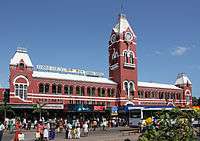
Air
The Chennai International Airport is the fourth-busiest in India in terms of passenger traffic behind New Delhi, Mumbai and Bengaluru. It handled about 15.2 million passengers in 2013–2014;[66][354][355] in terms of international passengers, Chennai is the third-busiest airport behind Indira Gandhi International Airport, Delhi, and Chatrapati Shivaji International Airport, Mumbai.[356] Chennai handles 400 flights a day, again placing it fourth among Indian airports. The city is connected to major hubs across Asia, Europe, Middle East and Africa through more than 30 national and international carriers.[357]
The existing airport is undergoing modernisation and expansion with an addition of 1,069.99 acres (433.01 ha), while a new greenfield airport is to be constructed at an estimated cost of ₹ 2,000 crore in Sriperumbudur on 4,200 acres (17 km2) of land.[358] The new airport is said to be likely to handle cargo spillover traffic from the existing one.[359]
Rail
Chennai hosts the headquarters of the Southern Railway. The city has four main railway terminals. Chennai Central, Chennai Egmore, Chennai Beach and Tambaram. Chennai Central station, the city's largest, provides nationwide access,[360] whereas Chennai Egmore provides access to destinations primarily within Tamil Nadu; however, it also handles a few inter–state trains. A fifth terminal has been proposed to decongest Chennai Central.[361] The Chennai suburban railway network, one of the oldest in the country, facilitates transportation within the city. It consists of four broad-gauge sectors terminating at two locations in the city, namely Chennai Central and Chennai Beach. While three sectors are operated on-grade, the fourth sector is primarily an elevated corridor, linking Chennai Beach to Velachery and is connected with the rest of the rail network.
Metro rail
Chennai Metro is a rapid-transit system serving the city and was partially commenced on 29 June 2015. To improve the city's public transportation system and prepare the city for the future commuting needs, the Chennai Metro was planned and approved by the state cabinet during 2007 for which construction began on 2009.[362] Phase I of the Chennai Metro network consists of the Blue Line and the Green Line covering a length of 45.1 kilometres (28.0 mi) consisting of 40 stations with Alandur and Chennai Central serving as interchanges. 55% of the corridors in Phase I are underground and the rest are elevated. The first stretch of Phase I, covering seven stations from Koyambedu to Alandur over a distance of 10 kilometres (6.2 mi), began operation on 29 June 2015. As of March 2019, the entire Phase 1 stretching from Chennai Central to Alandur on the Green line and Washermanpet to Chennai International Airport on Blue line are commercially operational, bringing the total operational network over 45 km. With this, the entirety of Phase I is operational. In December 2016, it was announced by Chennai Metro Rail Limited (CMRL) that Phase-2 of Chennai Metro is set to be for a length of 104 km consisting of 104 stations which was subject to approval from the State and Central governments. The Phase 2 was subsequently approved in late 2018, with certain provisos, and soil testing for the various stations are in full swing with construction set to begin in late 2019/ early 2020.[363] As of April 2019 ridership has risen considerably to around 100,000 daily commuters, post the inaugural of the entire Phase I.[364] Phase I-A, which is an extension of the Blue line from Washermanpet to Thiruvottiyur is expected to be inaugurated by June 2020.[365]
Road
Chennai is connected by the Golden Quadrilateral system of National Highways.[366] It is connected to other Indian cities by four major National Highways (NH) that originate in the city. They are NH 4 to Mumbai (via Bangalore and Pune), NH 5 to Kolkata (linked via NH 6) (via Visakhapatnam and Bhubaneswar), NH 45 to Theni (via Villupuram, Tiruchirapalli and Dindigul) and NH 205 to Madanapalle (via Tirupati). Chennai is connected to other parts of the state and the Union Territory of Puducherry by state highways.[367]
The government has constructed grade separators and flyovers at major intersections, and built Inner Ring Road and Outer Ring Road.[368][369] The Gemini flyover, built in 1973, crosses over the arterial road, and eases the traffic movements towards Anna Salai and towards the Kathipara Flyover.[368][369] As of 2011, according to the Transport Department, there were 25.8 lakh two–wheelers and 5.6 lakh four–wheelers in the city, and the Metropolitan Transport Corporation (MTC) bus fleet were 3,421, equaling 0.1% of all vehicles in the city.[370]
When opened, the Chennai Mofussil Bus Terminus (CMBT) was the largest bus station in Asia.[371] It is the main intercity bus station of Chennai,[372] administered by seven government-owned transport corporations, which operate intercity and interstate bus services. There are many private bus companies. The MTC provides an exclusive intracity bus service, consisting of 3,421 buses on 724 routes, which provides transportation to 55.2 lakh passengers daily.[368][373] The Tamil Nadu State Transport Corporation operates Volvo air-conditioned services from Chennai to nearby Pondicherry, Vellore, Hosur and Trichy.[374]
The other means of road transport in the city include vans, regionally known as Maxi Cabs, auto rickshaws, on-call metered taxis and tourist taxis.[375]
Chennai outer ring road is 62.3 km long connecting NH 45 (GST Road) at Perungalathur, NH 4 (GWT Road) at Nazarathpet, NH 205 (CTH Road) at Nemilicherry (Thiruninravur), NH 5 (GNT Road) at Nallur and TPP road at Minjur under the process by Chennai Metropolitan Area.
Sea
The city is served by two major ports, Chennai Port, one of the largest artificial ports in India, and Ennore Port. Chennai Port is the largest in the Bay of Bengal, with an annual cargo tonnage of 6.146 crore (2010–2011), and the second-largest container-hub in India, with an annual container volume of 15.23 lakh TEUs (2010–2011). The port handles transportation of automobiles, motorcycles and general industrial cargo.[66] The Ennore Port with an annual cargo tonnage of 1.101 crore (2010–2011), handles coal, ore and other bulk and rock mineral products.[376] Royapuram fishing harbour is used by fishing boats and Kattupalli Shipyard near Ennore Port was inaugurated in January 2013.[377][378]
Media
Newspaper publishing started in Chennai with the launch of a weekly, The Madras Courier, in 1785.[379] It was followed by the weeklies The Madras Gazette and The Government Gazette in 1795. The Spectator, founded in 1836, was the first English newspaper in Chennai to be owned by an Indian and became the city's first daily newspaper in 1853.[380] The first Tamil newspaper, Swadesamitran, was launched in 1899.[379] First Telugu journal printed from Madras was Satya Doota in 1835 and Andhra Patrika found in 1908 was the most successful Telugu newspaper from Madras.[381][382]
The major English dailies published in Chennai are The Hindu, The New Indian Express, The Deccan Chronicle and The Times of India and many more. The evening dailies are, The Trinity Mirror and The News Today. As of 2004, The Hindu was the city's most read English newspaper, with a daily circulation of 267,349.[383] The major business dailies published from the city are The Economic Times, The Hindu Business Line, Business Standard, Mint and The Financial Express. The major Tamil dailies include the Dina Thanthi, Dinakaran, Dina Mani, Dina Malar, The Hindu Tamil,[384] Tamil Murasu, Makkal Kural and Malai Malar. Malayala Manorama and Mathrubhumi are the major Malayalam dailies while major Telugu dailies include Eenadu, Vaartha, Andhra Jyothi and Sakshi.[385] The one and only Hindi Newspaper published from Chennai is the Rajasthan Patrika.[386] The Local weekly Newspapers circulated to residents are T. Nagar Times, Pillar Times, Arcot Road Talk, Chrompet Times.[387] Chennai's First Corporate Leisure Newspaper, The Shopping Express.[388] Magazines published from Chennai include Ananda Vikatan, Kumudam, Kalki, Kungumam, Puthiya Thalaimurai, Thuglak, Frontline and Sportstar
Doordarshan runs two terrestrial television channels and two satellite television channels from its Chennai centre, which was set up in 1974. Private Tamil satellite television networks such as Sun TV, Raj TV, Zee Tamizh, Star Vijay, Jaya TV, Makkal TV, Vasanth TV, Kalaignar TV, Captain TV and PuthiyaThalaimurai TV broadcast out of Chennai. The Sun Network one of India's largest broadcasting companies is based in the city. While the cable TV service is entirely controlled by the state government,[389] direct–to–home (DTH) is available via DD Direct Plus, Dish TV, Tata Sky, Videocon DTH, Sun direct DTH, Reliance Big TV and Digital TV.[390][391] Chennai is the first city in India to have implemented the Conditional Access System for cable television.[392] Radio broadcasting began in 1924 by the Madras Presidency Radio Club.[393] The radio station at the Rippon Buildings complex was founded in 1930 and was then shifted to All India Radio in 1938.[379] The city has four AM and 11 FM radio stations operated by All India Radio, Anna University and Suryan FM, Radio Mirchi, BIG FM, Hello FM, Radio City, Radio One among others.[394]
Education
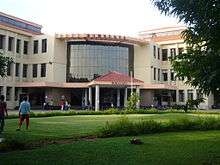
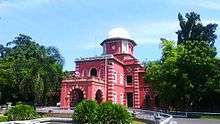
.jpg)
Chennai is home to some of the best educational institutions in the country.[395] The city ranks second among Indian metropolitan city centres with a 90.33 percent literacy rate.[396] Chennai has a mix of public and private schools, some of which also receive financial support from the government.
The public school system is managed by the Chennai Corporation with an enrollment of 142,387 students in over 330 schools.[397] Tamil and English are the primary medium of instruction, though some schools also use Telugu and Urdu as medium of instruction in their schools.[397] Public schools run by the Chennai Corporation are all affiliated with the Tamil Nadu State Board, while private schools may be affiliated with either of the Tamil Nadu Board of Secondary Education or the Central Board of Secondary Education (CBSE).[398] A few schools are affiliated with the Council for the Indian School Certificate Examinations,[399] the National Institute of Open Schooling (NIOS) board or the Montessori system. Education in Chennai starts with two years of Kindergarten from age three onward and then follows the Indian 10+2+3 plan, ten years of school, two years of higher secondary education, and three years of undergraduate education.[400][401]
English is the medium of instruction in the majority of institutions for higher education.[397] The University of Madras, founded in 1857, is one of India's first three modern universities.[402] Colleges for science, arts, and commerce degrees are typically affiliated with the University of Madras, which has six campuses in the city.[403] The Indian Institute of Technology Madras (IIT Madras) and the College of Engineering, Guindy, Anna University are two well-known centres for engineering education in the city. The Indian Army's Officers Training Academy is also headquartered in the city.
Chennai has a plethora of libraries, including British Council Library, American Library, Connemara Public Library, and Anna Centenary Library. The Connemara Public Library is one of four National Depository Centres in India that receive a copy of all newspapers and books published in the country.[404][405] The Anna Centenary Library is the largest library in Asia.[406][407]
Chennai has two CSIR research institutions namely Central Leather Research Institute and Structural Engineering Research Centre. Chennai Book Fair, an annual book fair organised in Chennai by the Booksellers and Publishers Association of South India (BAPASI), is the largest exhibition for Tamil book publishers to display their books. The fair is typically held for about 10 days between the last week of December and the third week of January.[408] The forty-first edition of the fair was held in 2018. Chennai also has Indian Maritime University to impart quality education in maritime management, engineering, and different pre-sea courses. This is the only central university, headquartered in Chennai to impart maritime education in India.
Sports and recreation
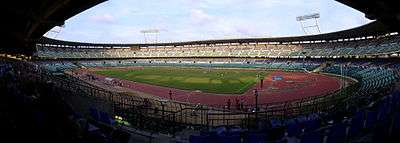
Cricket is the most popular sport in Chennai.[409] It was introduced in 1864 with the foundation of the Madras Cricket Club.[410] The M.A. Chidambaram Stadium established in 1916 is among the oldest cricket stadiums in India.[411] The stadium was also one of the venues of the 1987,1996 and 2011 ICC Cricket World Cups. Chemplast Cricket Ground located at the IIT Madras campus is another important venue for cricket matches. Prominent cricketers from the city include former cricket captains S. Venkataraghavan and Kris Srikkanth.[412][413] A cricket fast bowling academy called the MRF Pace Foundation, whose coaches include T. A. Sekhar and Glenn Mcgrath, is based in Chennai.[414][415] Being home to the Indian Premier League (IPL) cricket team Chennai Super Kings, the city hosted the finals of the IPL's 2011 and 2012 series.[416][417]

The city's football team Chennaiyin FC competes in the Indian Super League, the country's association football league associated with Asian Football Federation and recognized by FIFA. The club uses the Jawaharlal Nehru Stadium nicknamed the Marina Arena as their home ground and are champions of the Indian Super League in 2015 and 2018.
Chennai was the venue of the 1995 South Asian Games.[418] Chennai is home to a World Series Hockey (WSH) team, the Chennai Cheetahs. The Mayor Radhakrishnan Stadium is associated with hockey and was venue for the international hockey tournament the 2005 Men's Champions Trophy and the 2007 Men's Asia Cup. The Jawaharlal Nehru Stadium is associated for hosting Football and athletic competitions, it also houses a multi–purpose indoor complex for competition in volleyball, basketball and table tennis. Water sports are played in the Velachery Aquatic Complex. Tennis sport is popularising among the city youths, Since 1997 Chennai has been host to the only ATP World Tour event held in India, the Chennai Open[419] which has been shifted to Pune as Maharashtra Open from 2017. Vijay Amritraj, Mahesh Bhupathi Ramesh Krishnan and Somdev Devvarman are tennis players from Chennai.[420] Chennai is home to Chennai Slam,[421] two-time national champion of India's top professional basketball division, the UBA Pro Basketball League.
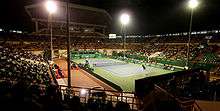
Madras Boat Club (founded in 1846) and the Royal Madras Yacht Club (founded by Sir Francis Spring in 1911) promote the sailing sports in Chennai, and organise national and international sailing events.[410] Automobile racing in India has been closely connected with Chennai since its beginnings shortly after independence. Motor racing events are held on a special purpose track in Madras Motor Race Track, Sriperumbudur,[422] which has also been the venue for several international competitions.[423] Formula One driver Karun Chandhok was born in Chennai.[424][425]
Horse racing is held at the Guindy Race Course, while rowing competitions are hosted at the Madras Boat Club. The city has two 18–hole golf courses, the Cosmopolitan Club and the Gymkhana Club, both established in the late nineteenth century. The city has a rugby union team called the Chennai Cheetahs.[426]
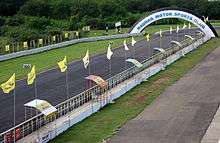
Previous world chess champion Viswanathan Anand grew up in Chennai.[427] Other sports persons of repute from Chennai include table tennis players Sharath Kamal and two–time world carrom champion, Maria Irudayam.[428][429] Chennai was the host of the World Chess Championship 2013 match between Viswanathan Anand and Magnus Carlsen.[430][431]
City based teams
| Club | Sport | League | Home Stadium | Founded |
|---|---|---|---|---|
| Chennai Slam | Basketball | UBA Pro Basketball League | Jawaharlal Nehru Indoor Stadium | 2015 |
| Chennai Superstarz | Badminton | Premier Badminton League | Jawaharlal Nehru Indoor Stadium | 2015 |
| Chennai Super Kings | Cricket | Indian Premier League | M.A. Chidambaram Stadium | 2008 |
| Chepauk Super Gillies | Cricket | Tamil Nadu Premier League | M.A. Chidambaram Stadium | 2016 |
| Chennaiyin FC | Football | Indian Super League | Marina Arena | 2013 |
| Tamil Thalaivas[432] | Kabaddi | Pro Kabaddi League | Jawaharlal Nehru Indoor Stadium | 2017 |
| Chennai Lions | Table tennis | Ultimate Table Tennis | Jawaharlal Nehru Indoor Stadium | 2019 |
| Chennai Spartans | Volleyball | Pro Volleyball League | Jawaharlal Nehru Indoor Stadium | 2019 |
International relations
Foreign missions
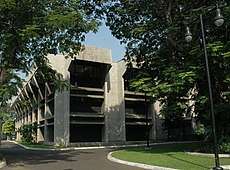
The consular presence in the city dates back to 1794, when William Abbott was appointed US consular agent for South India.[433][434][435] As of 2012, there were 43 foreign representations in Chennai, including consulates general, deputy high commissions and honorary consulates.[436] The American Consulate in Chennai is one of the top adjudication posts in the world and the number one in processing employment-based visas. It was ranked among the top globally in issuing 'L' and 'H' category visas for workers and professionals and was ranked eighth globally in terms of all category of visas being issued.[437]
The Foreigners Regional Registration Office (FRRO), which is the office of the field officers in charge of immigration and registration activities in the city, is located at Shastri Bhavan at Haddows Road.[438]
Twin towns – Sister cities
Chennai has sister city relationships with the following cities of the world:
| City | Country | State/Region | Continent | Since | Ref. |
|---|---|---|---|---|---|
| Europe | 1966 | [439] | |||
| North America | 1984 | [440] | |||
| North America | 2008 | [441] | |||
| Asia | 2010 | [442] | |||
| Asia | 2015 | [443] | |||
| Asia | 2016 | [444] |
See also
- Areas of Chennai
- List of people from Chennai
- Timeline of Chennai history
References
- Business America. U.S. Department of Commerce. 1997. p. 14.
- "Chennai: PhaseII" (PDF). Archived from the original (PDF) on 24 April 2014. Retrieved 24 April 2014.
- "Chennai Expansion Could Be Tricky, Suggests History". The New Indian Express. Retrieved 30 May 2017.
- "About Greater Chennai Corporation". Official Website of Greater Chennai Corporation. Archived from the original on 2 June 2015. Retrieved 25 January 2010.
- "Chennai Corporation is re-christened Greater Chennai Corporation". The Hindu. Retrieved 31 January 2016.
- "About Greater Chennai Corporation". Official Website of Greater Chennai Corporation. Archived from the original on 2 June 2015. Retrieved 27 June 2019.
- "Tamil Nādu (India): State, Major Agglomerations & Cities – Population Statistics in Maps and Charts". City population.de. Retrieved 13 October 2015.
- "India Stats: Million plus cities in India as per Census 2011". Press Information Bureau, Mumbai. National Informatics Centre. Archived from the original on 30 June 2015. Retrieved 20 August 2015.
-
- "Global city GDP 2014". Brookings Institution. 22 January 2015. Archived from the original on 25 May 2017. Retrieved 4 March 2017.
- "Global city GDP rankings 2008–2025". PwC. Archived from the original on 4 May 2011. Retrieved 16 December 2009.
- "India's top 15 cities with the highest GDP Photos Yahoo! India Finance". Yahoo! Finance. 28 September 2012. Archived from the original on 9 October 2014. Retrieved 27 March 2017.
- Jones, Daniel (2003) [1917], Peter Roach; James Hartmann; Jane Setter (eds.), English Pronouncing Dictionary, Cambridge: Cambridge University Press, ISBN 3-12-539683-2
- "UN Demographic Urban Areas". UN stats. Retrieved 12 October 2015.
- Bremner, Caroline. "Top 100 City Destinations Ranking" (PDF). Euromonitor International. Retrieved 9 August 2016.
- Lakshmi, K. (25 February 2016). "Chennai rated the safest city in India". The Hindu. Retrieved 19 April 2016.
- "Chennai – India's Health Capital". India Health Visit. Retrieved 1 September 2012.
- "The quality of air you breathe in Chennai is worse than in Delhi". The Hindu. Retrieved 15 July 2015.
- Ramakrishnan, Deepa H. (19 June 2019). "Chennai's air quality takes a turn for the worse". The Hindu. ISSN 0971-751X. Retrieved 17 August 2019.
- "Growing expat community favour cluster accommodation [sic]". The Economic Times. 15 January 2009. Retrieved 29 December 2012.
- "India – exploring an Asian giant". The Guardian. February 2013.
- "Chennai – Best In Travel 2015". Lonely Planet. Retrieved 4 July 2015.
- "Global cities index 2015". A.T. Kearney. Archived from the original on 23 September 2015. Retrieved 16 May 2015.
- "India Today Best City Awards 2014: Chennai bags top honour". India Today.
- "Alpha, Beta and Gamma cities". Classification of Cities. Spotted by Locals. Retrieved 4 April 2015.
- Lindsey Galloway. "The best places to live this year". BBC.com Travel.
- "Top 10 food cities". National Geographic. Retrieved 12 October 2015.
- "Chennai named 9th best cosmopolitan city in the world". The Hindu. Retrieved 12 October 2015.
- "Chennai is now part of UNESCO's 'creative cities network'". The Hindu. Retrieved 11 November 2017.
- "Meet the Smart Cities: Bhubaneswar, Pune, Jaipur top the list". CNN-IBN. 28 January 2016.
- "Origin And Foundation of Madras | TLPMS". tlpms.in. Archived from the original on 2 September 2018. Retrieved 10 January 2017.
- "| TLPMS". tlpms.in. Archived from the original on 10 February 2017. Retrieved 10 January 2017.
- S. Muthiah (2008). Madras, Chennai: A 400-year Record of the First City of Modern India. Palaniappa Brothers. ISBN 978-81-8379-468-8.
- "District Profile, Chennai". Government of Tamil Nadu. Archived from the original on 14 January 2016. Retrieved 27 November 2015.
- C S Srinivasachari (1939). History of the City of Madrae third-largest economys. pp. 63–69.
- "District Profile – Chennai". District Administration, Chennai. Archived from the original on 4 November 2012. Retrieved 28 December 2012.
- Muthiah, S. (4 March 2012). "The 'Town Temple' resurrected". The Hindu. Chennai, India. Archived from the original on 7 March 2012.
- thmmn. "The Hindu : Face behind the name". www.thehindu.com. Retrieved 7 March 2018.
- Krishnamachari, Suganthy (21 August 2014). "Madras is not alien" – via www.thehindu.com.
- Krishnamachari, Suganthy (21 August 2014). "Madras is not alien". The Hindu (Friday Review). Retrieved 19 December 2015.
- The Geography of India: Sacred and Historic Places. Britannica Educational Publishing. 2011. ISBN 978-1-61530-202-4.
- Kurian, Nimi (31 August 2007). "Young World: And the city grew". The Hindu. Retrieved 28 December 2012.
- "MUDIRAJ BUILT CITIES". mudiraja.com. Archived from the original on 21 March 2019. Retrieved 18 March 2019.
- Sadanandam, P. (2008). Art and Culture of Marginalised Nomadic Tribes in Andhra Pradesh. Gyan Publishing House. ISBN 9788121209588.
- F. H., Scott (1853). Routes in the Peninsula of India: Comprising the Whole of the Madras Presidency and Portions of the Adjacent Territories of Bengal and Bombay. Pharoah and Co., Athenaeum Press. p. iv.
- "Origin of the Name Madras". Corporation of Madras.
- Tharoor, Shashi (6 September 2002). "In India's name game, cities are the big losers". International Herald Tribune. Retrieved 28 December 2012.
- Special Correspondent (23 September 2005). "Walkout in State Assembly". The Hindu. Retrieved 28 December 2012.
- Kalpana (2003) Madras: The Architectural Heritage
Muthiah (2004), Madras Rediscovered
Ali (2005), Madras on Rainy Days
Ashok & Balasubramanian (2005) Chennai latté: a Madras brew
Chandrasekhar, Government Museum (2006) The wild ferns of Madras city and its immediate neighbourhood
Maracayyā (2008), Madras: Tracing the Growth of the City since 1639
Barlow (2009) The Story of Madras
Muthiah (2011) A Madras Miscellany: A Decade of People, Places & Potpourri - "Road workers stumble upon ancient grinding stone in Pallavaram". The Times of India. 19 September 2010. Retrieved 28 December 2012.
- Awakening Indians to India (Hard Bound). Central Chinmaya Mission Trust. 2008. p. 215. ISBN 978-81-7597-433-3.
- Pat Chapman (2007). India: Food & Cooking: The Ultimate Book on Indian Cuisine. Replika Press Pvt. Ltd. p. 21. ISBN 978-1-84537-619-2.
- Alain Daniélou; Kenneth Hurry (2003). A brief history of India. Alain Daniélou. p. 173. ISBN 978-1-59477-794-3.
- R., Vaidyanadhan (31 August 2009). "Chennai Coins-the Vijayanagara Connection". The Hindu. Archived from the original on 26 August 2013. Retrieved 28 December 2012.
- "Chennai History". Corporation of Chennai. Retrieved 28 December 2012.
- Velcheru Narayana Rao, David Shulman, Sanjay Subrahmanyam (1998). Symbols of substance : court and state in Nayaka period Tamilnadu. Oxford : Oxford University Press, Delhi. p. xix, 349 p., [16] p. of plates : ill., maps ; 22 cm. ISBN 0-19-564399-2.CS1 maint: multiple names: authors list (link)
- Heras, H. (1 July 1927). "South India Under The Vijayanagar Empire Vol. 1" – via Internet Archive.
- "Welcome to Greater Chennai Corporation". www.chennaicorporation.gov.in.
- James Talboys Wheeler, India Under British Rule; From the Foundation of the East India Company, TheClassics.us (12 September 2013), ISBN 978-1230394978
- Thilakavathy, M.; Maya, R. K. (5 June 2019). FACETS OF CONTEMPORARY HISTORY. MJP Publisher. p. 583.
- Frykenberg, Robert Eric (26 June 2008). Christianity in India: From Beginnings to the Present. OUP Oxford. ISBN 9780198263777.
- Roberts J. M. (1997). A short history of the world. Helicon publishing Ltd. p. 277. ISBN 978-0-19-511504-8.
- Wagret, Paul (1977). Nagel's encyclopedia-guide. India, Nepal. Geneva: Nagel Publishers. p. 556. ISBN 978-2-8263-0023-6. OCLC 4202160.
- City Bureau (22 March 2010). "All eyes on new Assembly-Secretariat Complex". The Hindu. Archived from the original on 31 August 2011. Retrieved 28 December 2012.
- Spencer C. Tucker (2010). A global chronology of conflict. ABC—CLIO. p. 756. ISBN 978-1-85109-667-1.
- S., Muthiah (21 November 2010). "Madras Miscellany - When Pondy was wasted". The Hindu. Archived from the original on 3 December 2010. Retrieved 28 December 2012.
- Radhey Shyam Chaurasia (2002). History of Modern India:1707 A.D. to 2000 A.D. Atlantic Publishers and Distributors. p. 94. ISBN 978-81-269-0085-5.
- "Madras Presidency". Britannica. Retrieved 12 October 2015.
- Marshall Cavendish Corporation (2007). World and Its Peoples: Eastern and Southern Asia. p. 442. ISBN 978-0-7614-7645-0.
- Bret Wallach (2005). Understanding the cultural landscape. The Guilford Press. p. 195. ISBN 978-1-59385-119-4.
- "Biography of Arthur Lawley". Retrieved 12 October 2015.
- Sir Arthur Lawley, Eloquent Knight Errant, Chapter 6. Catastrophe, Conspiracy, Celebration. The Benefits of Empire, Lady Lawley Cottage (Western Australian Red Cross) 2008 iBook
- Notes on the Administration of Sir Arthur Lawley, Governor of Madras, 1906–1911. Madras Government Press, 1912
- A Message from Mesopotamia, Sir Arthur Lawley, Hodder and Stoughton, London. 1917.
- Hodge, Carl Cavanagh (2008). Encyclopedia of the age of imperialism, 1800–1914. Greenwood Publishing Group. p. 446. ISBN 978-0-313-04341-3.
- J W Bond; Arnold Wright (1914). Southern India: Its History, People, Commerce and Industrial resources. Foreign and Colonial Compiling and Publishing Company, London. pp. 51–52. ISBN 81-206-1344-9.
- "Madras Renamed Tamil Nadu". Hubert Herald. Retrieved 12 October 2015.
- V. Shoba (14 August 2011). "Chennai says it in Hindi". The Indian Express. Retrieved 28 December 2012.
- "Madras renamed Chennai". mapsofindia.com. Retrieved 12 October 2015.
- Altaff, K; J Sugumaran, Maryland S Naveed (10 July 2005). "Impact of tsunami on meiofauna of Marina beach, Chennai, India" (PDF). Current Science. 89 (1). Retrieved 28 December 2012.CS1 maint: ref=harv (link)
- Mohanty, Ashutosh. "Impact of Tsunami in India". Expressindia. Archived from the original on 15 January 2013. Retrieved 28 December 2012.
- "Tamil Nadu government pegs flood damage at Rs 8,481 crore, CM Jayalalithaa writes to PM Modi". DNA. 23 November 2015.
- "Tamil Nadu's deadly rains hit industries hard". Deccan Herald. 30 November 2015. Retrieved 1 December 2015.
- "Chennai rains: Death toll crosses 260, Home Minister says situation 'very alarming'". The Indian Express. 2 December 2015.
- "Geographical and physical features". Chennai District. Archived from the original on 30 July 2013. Retrieved 28 December 2012.
- Pulikesi, M; P. Baskaralingam, D. Elango, V.N. Rayudu, V. Ramamurthi, S. Sivanesan (25 August 2006). "Air quality monitoring in Chennai, India, in the summer of 2005". Journal of Hazardous Materials. 136 (3): 589–596. doi:10.1016/j.jhazmat.2005.12.039. PMID 16442714.
Chennai is fairly low–lying, its highest point being only 300 metres (980 ft) above sea level is a rugged barren hill opposite to the Airport called Pallavapuram Hill.
CS1 maint: multiple names: authors list (link) CS1 maint: ref=harv (link) - "Welcome to University of Madras – 154 years of Excellence". Unom.ac.in. 2 February 2012. Retrieved 10 June 2013.
- "Adyar River pollution". The Hindu. Retrieved 12 October 2015.
- "Couvum River pollution". The Times of India. Retrieved 12 October 2015.
- S. Theodore Baskaran (2008). "Chapter 2: Wildlife". In S. Muthiah (ed.). Madras, Chennai: A 400-year Record of the First City of Modern India, Volume 1. Palaniappa Brothers. p. 55. ISBN 978-81-8379-468-8. Retrieved 28 December 2012.
- K, Lakshmi (13 July 2004). "It's no cola, it's the water supplied in Korattur". The Hindu. Retrieved 28 December 2012.
- "Practices and Practitioners". Centre for Science and Environment. Retrieved 28 December 2012.
- "Quality of groundwater better this year". The Times of India. 29 January 2011. Retrieved 28 December 2012.
- Lakshmi, K. (28 August 2012). "Tardy monsoon: Chennai water table rises only marginally". The Hindu. Chennai. Retrieved 28 December 2012.
- Susheela Raghavan; Indira Narayanan (2008). "Chapter 1: Geography". In S.Muthiah (ed.). Madras, Chennai: A 400-year Record of the First City of Modern India, Volume 1. Palaniappa Brothers. p. 13. ISBN 978-81-8379-468-8.
- Lakshmi, K. (10 November 2018). "T.N. lost 41% shoreline to erosion: study". The Hindu. Chennai: Kasturi & Sons. Retrieved 10 November 2018.
- John, Ekatha Ann (29 September 2012). "Disaster body for panel to monitor highrises in Chennai". The Times of India. Chennai. Retrieved 28 December 2012.
- Yadav, Priya (10 January 2013). "Soon, power from ancient rocks". The Times of India. Chennai. Retrieved 10 January 2013.
- "Rare grey headed Lapwings spotted at Pallikaranai marsh". acjnewsline.com. Archived from the original on 31 March 2012. Retrieved 12 October 2015.
- "Wetlands in Tamil Nadu" (PDF). Tamil Nadu State Dept. of Environment and Related Issues. Archived from the original (PDF) on 21 March 2012. Retrieved 12 October 2015.
- "Wildlife centre at Vandalur zoo replaces safari". The Hindu. Retrieved 12 October 2015.
- "Madras Crocodile Bank Trust, India". listofzoos.com. List of Zoos Worldwide. Retrieved 29 August 2011.
- "Tree cover in city is only around 15%". The Hindu. Chennai. 11 February 2018. Retrieved 11 February 2018.
- K., Lakshmi (20 January 2019). "Indigenous flora in city wetlands under threat". The Hindu. Chennai: Kasturi & Sons. Retrieved 3 February 2019.
- "Vanishing wetlands". The Hindu. Retrieved 12 October 2015.
- "Next time by water". The Economist. ISSN 0013-0613. Retrieved 11 December 2015.
- "Muck in Chennai rivers to turn into manure". The Times of India. Retrieved 12 October 2015.
- "More citizens initiative for restoring water bodies". The Hindu. Retrieved 12 October 2015.
- "Water security mission to watch out for city's needs". The Hindu. Retrieved 12 October 2015.
- V, Jinoy Jose P. & NARAYANAN. "Living without water in Chennai". @businessline. Retrieved 19 June 2019.
- "About Chennai" (PDF). Chennai Metropolitan Development Authority. p. 1. Retrieved 28 December 2012.
- Ramakrishnan, T (18 May 2005). "Hot spell may continue for some more weeks in the State". The Hindu. Retrieved 28 December 2012.
- India Meteorological Department. "Ever Recorded Maximum Temperature, Minimum Temperature and 24 Hours Heaviest Rainfall up to 2010" (PDF). India Meteorological Department, Pune. p. 67. Archived from the original (PDF) on 16 March 2014. Retrieved 29 May 2014.
- "Indian Meteorological Department, Chennai Regional Website". Indian Meteorological Department. Archived from the original on 21 November 2012. Retrieved 28 December 2012.
- Ramakrishnan, T (3 January 2006). "Entering 2006, city's reservoirs filled to the brim". The Hindu. Retrieved 28 December 2012.
- "NASA climate data visualised". Classzone.com. Retrieved 28 December 2012.
- "Northeast Monsoon". India Meteorological Department Regional Meteorological Centre: Chennai. Archived from the original on 29 December 2015. Retrieved 19 March 2016.
- Ayyappan, V. (22 March 2012). "Metro dips under historic Cooum". The Times of India. Retrieved 28 December 2012.
- "Station: Chennai (Nungambakkam) Climatological Table 1981–2010" (PDF). Climatological Normals 1981–2010. India Meteorological Department. January 2015. pp. 185–186. Archived from the original (PDF) on 5 February 2020. Retrieved 2 March 2020.
- "Extremes of Temperature & Rainfall for Indian Stations (Up to 2012)" (PDF). India Meteorological Department. December 2016. p. M192. Archived from the original (PDF) on 5 February 2020. Retrieved 2 March 2020.
- "Table 3 Monthly mean duration of Sun Shine (hours) at different locations in India" (PDF). Daily Normals of Global & Diffuse Radiation (1971–2000). India Meteorological Department. December 2016. p. M-3. Archived from the original (PDF) on 5 February 2020. Retrieved 2 March 2020.
- "Chennai Climatological Table 1981–2010". India Meteorological Department. Retrieved 2 March 2020.
- "Normals Data". Japan Meteorological Agency. Retrieved 11 May 2020.
- "NE monsoon sets in, brings in copious rains". www.rediff.com.
- Lopez, Aloysius Xavier (31 August 2018). "A Rs. 228-cr. project to take city's green cover to 20%". The Hindu. Chennai: Kasturi & Sons. p. 4. Retrieved 2 September 2018.
- Lakshmi, K. (1 April 2018). "The vanishing waterbodies of Chennai". The Hindu. Chennai: Kasturi & Sons. p. 2. Retrieved 21 October 2018.
- S.Muthiah (2008). Madras, Chennai: A 400-year Record of the First City of Modern India, Volume 1. Association of British Scholars (India). Chennai Chapter. Palaniappa Brothers. p. 217. ISBN 978-81-8379-468-8.
- Achutan, Kannal (23 September 2008). "Chennai Corporation to celebrate 320 years". The Hindu. Chennai. Retrieved 28 December 2012.
- "Scope of digital mapping exercise in city likely to be enlarged". The Hindu. 24 December 2011. Retrieved 28 December 2012.
- "Expanded Chennai Corporationto be divided into 3 regions". The Hindu. 25 November 2011. Archived from the original on 16 October 2015. Retrieved 28 December 2012.
- "Wards Committee" (PDF). Chennai Corporation. 12 September 2011. Retrieved 28 December 2012.
- "Chennai Corp. Council". Chennai Corporation. Retrieved 12 October 2015.
- "Saidai Sa. Duraisamy is mayor". The Hindu. Retrieved 12 October 2015.
- "Executive Chart". About COC;Corporation of Chennai. Archived from the original on 2 June 2015. Retrieved 28 December 2012.
- Srivathsan, A (19 September 2013). "Indecisiveness keeps urban projects on hold". The Hindu. Chennai. Retrieved 20 September 2013.
- "About Corporation of Chennai". Chennai Corporation. Archived from the original on 2 June 2015. Retrieved 28 December 2012.
- "Chennai Metropolitan Area – Profile". Chennai Metropolitan Development Authority. Retrieved 28 December 2012.
- "3 satellite towns proposed for Chennai". The Hindu. 12 April 2007. Retrieved 28 December 2012.
- "Government of Tamil Nadu: Home Department: Department of Justice". Official website of the Government of Tamil Nadu. Archived from the original on 24 January 2012. Retrieved 19 January 2013.
- "List of TN Assembly constituencies". Assembly.tn.gov.in. Archived from the original on 14 June 2012. Retrieved 28 December 2012.
- K.T. Sangameswaran (24 February 2005). "City police await notification on extending Commissionerate's jurisdiction". The Hindu. Retrieved 28 December 2012.
- "Chennai Metro Police". Tamil Nadu Police. Retrieved 12 October 2015.
- "Kanchipuram Police". Tamil Nadu Police. Archived from the original on 11 October 2011. Retrieved 12 October 2015.
- "Thiruvallur Police". Tamil Nadu Police. Archived from the original on 11 October 2011. Retrieved 12 October 2015.
- "Despite rising population, number of police". The Times of India. 7 April 2011. Retrieved 28 December 2012.
- "Crimes in Mega Cities" (PDF). National Crime Records Bureau. Govt. of India. Archived from the original (PDF) on 26 August 2013. Retrieved 28 December 2012.
- Selvaraj, A. (15 April 2011). "Triplicane police station gets bigger with more area, men". The Times of India. Chennai. Retrieved 3 December 2013.
- "150-yr-old Central prison closed for good". The Times of India. 19 January 2009. Retrieved 28 December 2012.
- S. Viswanathan (7 December 2009). "Language issue again: the need for a clear-headed policy". The Hindu. Archived from the original on 20 January 2010. Retrieved 28 December 2012.
- Theosophy and the Origins of the Indian National Congress, Bevir, Mark, University of California, Berkeley, Publication Date: 1 January 2003 s. 14–18. Original Citation: Mark Bevir, "Theosophy and the Origins of the Indian National Congress", International Journal of Hindu Studies 7 (2003), 99–115. E.g., "Theosophical Society provided the framework for action within which some of its Indian and British members worked to form the Indian National Congress.", "1884 annual convention of the Theosophical Society. At this convention, Rao argued that the Society should start formally to discuss the political situation in India as well as more strictly religious matters. Although Rao did not get his way, he did arrange a meeting of sympathetic theosophists to be held at his home. Those who attended this meeting with Rao included Aiyar, Ananda Charlu, and M. Viraraghavachariar. They formed the Madras Mahajana Sabha," "meeting to coincide with the next annual convention of the Theosophical Society. This meeting would promote their idea of an all-India body." "Hume was probably the single most important individual for the formation of the Indian National Congress."
- Sitaramayya, B. Pattabhi. 1935. The History of the Indian National Congress. Working Committee of the Congress. Scanned version
- Irschick, Eugene F. (1969). Political and Social Conflict in South India; The non-Brahmin movement and Tamil Separatism, 1916–1929 (PDF). University of California Press. OCLC 249254802. Archived from the original (PDF) on 4 March 2016. Retrieved 23 September 2012.CS1 maint: ref=harv (link)
- Rajaraman 1988, ch. 4 (Ideology, Organisation and Programme of the Justice Party)
- Irschick 1969, pp. 172–178
- Taylor, Richard Warren (1982). Religion and Society: The First Twenty-five Years, 1953–1978. Christian Literature Society (for the Christian Institute for the Study of Religion and Society, Bangalore). p. 242. OCLC 9007066.
- Second Master Plan (PDF). Chennai Metropolitan Development Authority. pp. 157–159. Retrieved 28 December 2012.
- "Water Supply System". Chennai Metro Water. Archived from the original on 15 October 2013. Retrieved 28 December 2012.
- Second Master Plan (PDF). Chennai Metropolitan Development Authority. p. 163. Retrieved 28 December 2012.
- "India's biggest desalination plant opens in Chennai". Hindustan Times. 1 August 2010. Archived from the original on 3 August 2010. Retrieved 28 December 2012.
- "IVRCL to set up desalination plant near Chennai". The Hindu. 12 August 2005. Archived from the original on 13 February 2009. Retrieved 28 December 2012.
- Radhakrishnan, R.K. (4 September 2007). "Preliminary work on desalination plant to be completed by December-end". The Hindu. Retrieved 28 December 2012.
- "Chennai worst in saving water". Deccan Chronicle. 6 May 2011. Archived from the original on 11 October 2012. Retrieved 28 December 2012.
- Ann, Ekatha (22 October 2014). "Rain opens city's filthy underbelly". The Times of India. Chennai. Retrieved 26 October 2014.
- "No response from firms to build toilets". The Times of India. 24 September 2012. Retrieved 28 December 2012.
- "From Feb 24, use public toilets for free, says mayor". The Times of India. Chennai. 31 October 2012. Retrieved 28 December 2012.
- "Residents to soon have free use of community halls". The Hindu. Chennai. 31 October 2012. Retrieved 28 December 2012.
- "New firm to begin conservancy work next week". The Hindu. 4 January 2012. Retrieved 28 December 2012.
- "New garbage collection, street cleaning mechanism". The Hindu. 27 January 2012. Retrieved 28 December 2012.
- "Soild Waste Management". Corporation of Chennai. Retrieved 28 December 2012.
- Madhavan, D. (7 April 2012). "Cluster-based solid waste mgmt may ease pressure on dump yards". The Times of India.
- Ramakrishnan, Deepa H (25 January 2012). "SMS fillip for garbage collection". The Hindu. Retrieved 28 December 2012.
- "Emergency and Utility Services Contact Details at Chennai". Govt. of Tamil Nadu. Archived from the original on 30 September 2007. Retrieved 28 December 2012.
- "Contact us". Tamil Nadu Fire and Rescue Service. Archived from the original on 23 April 2012. Retrieved 28 December 2012.
- "List of fire stations". Tamil Nadu Fire and Rescue Service. Archived from the original on 24 April 2012. Retrieved 28 December 2012.
- Lakshmi, K. (28 June 2018). "Iconic General Post Office to finally get a makeover". The Hindu. Chennai. Retrieved 15 July 2018.
- Sujatha, R. (29 April 2012). "Agraharam – time virtually stands still here". The Hindu. Chennai. Archived from the original on 5 July 2012. Retrieved 28 December 2012.
- Iyer, Aruna V. (7 October 2011). "Chennai's vanishing agraharams". The Hindu. Chennai. Archived from the original on 30 April 2012. Retrieved 28 December 2012.
- Ravishankar, Sandhya (6 September 2007). "No fire safety norms at Chennai heritage buildings". IBN Live. Chennai: CNN IBN. Retrieved 28 December 2012.
- Metcalfe, Thomas R. "A Tradition Created: Indo-Saracenic Architecture under the Raj". History Today. 32 (9). Retrieved 28 December 2012.CS1 maint: ref=harv (link)
- Sitalakshmi, K. R. (5 August 2006). "Art Deco buildings in Chennai". The Hindu. Chennai. Retrieved 28 December 2012.
- "Indo-saracenic Architecture". Henry Irwin, Architect in India, 1841–1922. higman.de. Retrieved 28 December 2012.
- Jeyaraj, George J. "Indo Saracenic Architecture in Channai" (PDF). CMDA. Retrieved 28 December 2012.
- The History of Indian Art (2013 ed.). saraswati publication.
- "New for Old". Frontline. Volume 20 – Issue 14, 5 to 18 July 2003. India's National Magazine from publishers of the Hindu.
- Sir Arthur Lawley, Eloquent Knight Errant, Chapter 6. Catastrophe, Conspiracy, Celebration. The Benefits of Empire. Lady Lawley Cottage (Western Australian Red Cross) 2008 iBooks
- Sir Arthur Lawley's Photo Album, Empire and Commonwealth Museum
- "A day in Chennai". Chennai Magic. Archived from the original on 8 July 2013. Retrieved 28 December 2012.
- Srivathsan, A. (14 July 2007). "Reaching the sky". The Hindu. Chennai. Retrieved 28 December 2012.
- Kannan, Shanthi (19 March 2005). "GREEN buildings". The Hindu. Chennai. Retrieved 28 December 2012.
- Koshy, Jacob P. (13 December 2007). "Doppler radar may put cap on building heights". New Delhi: Livemint.com. Retrieved 28 December 2012.
- H. D. Love (1913). "Population of Madras". Vestiges of Old Madras, Vol 3. p. 557.
- Imperial Gazetter of India, Volume 16. Clarendon Press. 1908.
- Mary Elizabeth Hancock (2008). The politics of heritage from Madras to Chennai. Indiana University Press. p. 220. ISBN 978-0-253-35223-1.
- Muthiah, S. (2004). Madras Rediscovered. East West Books (Madras) Pvt Ltd. p. 22. ISBN 81-88661-24-4.
- Sangya Srivastava (2005). Studies in Demography. Anmol Publications PVT. LTD. p. 251. ISBN 978-81-261-1992-9.
- "Area and Population" (PDF). Chennai District Statistical Handbook. District Administration, Chennai. Archived from the original (PDF) on 30 August 2013. Retrieved 28 December 2012.
- "2011 Census results" (PDF). Government of India. Retrieved 12 October 2015.
- "Chennaite to represent India at Abilympics". The Hindu. 2 March 2007. Retrieved 28 December 2012.
- Lakshmi, C. S. (1 January 2004). The Unhurried City: Writings on Chennai. Penguin Books India. p. 11. ISBN 978-0-14-303026-3.
- Bergman (2003). Introduction to Geography. Pearson Education. p. 485. ISBN 978-81-317-0210-9.
- "Smart Cities Mission" (PDF). Government of India.
- Aloysius Xavier Lopez (28 March 2012). "Half of city lives in rented homes". The Hindu. Retrieved 28 December 2012.
- "Number of people below the poverty line to increase in city". The Hindu. Chennai: Kasturi & Sons. 13 May 2019. p. 3. Retrieved 20 May 2019.
- Siddique, Zahra (2008). Ethnicity, Race and Gender in the Labor Market. p. 30. ISBN 978-0-549-50781-9.
- Joseph Getter; B.Balasubrahmaniyan (29 September 2008). "Tamil Film Music: Sound and Significance". In Slobin, Mark (ed.). Global Soundtracks: Worlds of Film Music. Wesleyan University Press. p. 119. ISBN 978-0-8195-6882-3."Kannadigas outnumber Malayalis 2:1 in Tamil Nadu". The Times of India. 15 April 2008. Retrieved 28 December 2012.
- "Demography" (PDF). Second Master Plan. Chennai Metropolitan Development Authority. Retrieved 28 December 2012.
- "Welcome to Census of India: Census India Library". www.censusindia.gov.in. Archived from the original on 15 March 2016. Retrieved 27 April 2016.
- Akundi, Sweta (18 October 2018). "K and the city: Why are more and more Chennaiites learning Korean?" – via www.thehindu.com.
- Akundi, Sweta (25 October 2018). "How Mandarin has become crucial in Chennai" – via www.thehindu.com.
- "How many tongues can you speak?". The New Indian Express.
- "Guten Morgen! Chennaiites signing up for German lessons on the rise | Chennai News - Times of India". The Times of India.
- "Konnichiwa!". @businessline.
- "Population By Religious Community – Tamil Nadu" (XLS). Office of The Registrar General and Census Commissioner, Ministry of Home Affairs, Government of India. 2011. Retrieved 13 September 2015.
- "The magic of melting pot called Chennai". The Hindu. 19 December 2011. Retrieved 29 December 2012.
- "The Parsi Arrival". The Hindu. 10 March 2008. Retrieved 29 December 2012.
- "The Parsis of Madras". Madras Musings. XVIII (12). 15 October 2008. Retrieved 29 December 2012.
- "Sindhis to usher in new year with fanfare". The Times of India. 24 March 2012. Retrieved 29 December 2012.
- "Catholic in outlook". The Hindu. 3 April 2003. Retrieved 29 December 2012.
- "Why Oriyas find Chennai warm and hospitable". The Times of India. 12 May 2012. Retrieved 29 December 2012.
- "Goan spirit in Chennai". The Hindu. 18 December 2000. Archived from the original on 18 March 2014. Retrieved 29 December 2012.
- "Chennai's Kannadigas not complaining". The Times of India. 5 April 2008. Retrieved 29 December 2012.
- "The Anglo-Indians of Chennai". Madras Musings. XX (12). 15 October 2010. Retrieved 29 December 2012.
- "A slice of Bengal in Chennai". The Times of India. 22 October 2012. Retrieved 29 December 2012.
- B.R., Madhu (16 September 2009). "The Punjabis of Chennai". Madras Musings. XX (12). Retrieved 29 December 2012.
- "Chennai in top 25 real estate destinations in Asia-Pacific: PwC survey". Business Line. Mumbai: The Hindu. 10 December 2013. Retrieved 22 December 2013.
- "Departments—Health". Corporation of Chennai. Archived from the original on 17 December 2012. Retrieved 28 December 2012.
- Srivathsan, A. (5 November 2012). "Plenty of houses, few affordable". The Hindu. Chennai. Retrieved 28 December 2012.
- Manish (27 March 2013). "Shelters Stay Shuttered". The Times of India. Chennai.
- Xavier Lopez, Aloysius (26 August 2017). "The shelter stalemate". The Hindu. Chennai. Retrieved 30 September 2017.
- "CM wants global arts fest in Chennai". Deccan Chronicle. 16 December 2012. Archived from the original on 1 January 2013. Retrieved 29 December 2012.
- "Where creativity thrives". The Hindu. 3 April 2009. Retrieved 25 November 2013.
- "For a solid grounding in arts". The Hindu. 3 April 2009. Archived from the original on 18 January 2013. Retrieved 29 December 2012.
- "Fort St. George museum". Archaeological Survey of India. Archived from the original on 16 October 2015. Retrieved 12 October 2015.
- "Indian tri-colour hoisted at Chennai in 1947 to be on display". The Hindu Business Line. Retrieved 4 July 2015.
- "Chennai". The Hindu. 1 December 2002. Retrieved 28 December 2012.
- Lakshmi Subramanian (2008). New Mansions for Music: Performance, Pedagogy and Criticism. Social Science Press. pp. 121–122. ISBN 978-81-87358-34-3.
- Knight Jr., Douglas M. (2010). Balasaraswati: Her Art and Life. Wesleyan University Press. p. 78. ISBN 978-0-8195-6906-6.
- Charukesi (2 January 2009). "Diary of a different kind". The Hindu. Retrieved 28 December 2012.
- G, Ezekiel Majello (10 October 2019). "Torching prejudice through gumption and Gaana". Deccan Chronicle. Retrieved 12 May 2020.
- "Chennai Sangamam 2011". The official website. Retrieved 28 December 2012.
- "Pookalam". onamfestival.org. Retrieved 12 October 2015.
- Peter Fletcher (29 April 2004). World Musics in Context: A Comprehensive Survey of the World's Major Musical Cultures. Oxford University Press. ISBN 978-0-19-816636-8.
- GR (2 December 2000). "Yearning for Chennai ambiance". The Hindu. Retrieved 28 December 2012.
- "Bharatanatyam at London Olympics". The Hindu. Chennai. 11 August 2012. Retrieved 28 December 2012.
- "Of choirs and carols". Business Standard. 2010. Retrieved 28 December 2012.
- "There's a song in the air." NXg. January 2009. Archived from the original on 15 June 2013. Retrieved 28 December 2012.
- "Structure of Chennai" (PDF). Second Master Plan. Chennai Metropolitan Development Authority. pp. 9, 10. Archived from the original (PDF) on 26 August 2013. Retrieved 28 December 2012.
- "Chennai City Map". Retrieved 12 October 2015.
- "Chennai activities". NASSCOM. Archived from the original on 16 November 2012. Retrieved 28 December 2012.
- Chandramouli, Rajesh (1 May 2008). "Chennai emerging as India's Silicon Valley?". The Economic Times. Retrieved 28 December 2012.
- Chris Devonshire-Ellis (2012). Doing Business in India. Springer. p. 218. ISBN 978-3-642-27617-0.
- U.S. International Trade Commission (2007). Competitive Conditions for Foreign Direct Investment in India, Staff Research Study #30. DIANE Publishing. pp. 2–10. ISBN 978-1-4578-1829-5.
- "The economist". 370 (8361–8364). Economist Newspaper Ltd. 2004: 282. Cite journal requires
|journal=(help)CS1 maint: ref=harv (link) - Rina Kamath (2000). Chennai. Orient Blackswan. p. 66. ISBN 978-81-250-1378-5.
- "Madras Stock Exchange". Archived from the original on 16 February 2016. Retrieved 12 October 2015.
- "In pictures: the next decade's fastest-growing cities – Chennai, India". Forbes. Retrieved 28 December 2012.
- "Company tax upped, capped at ₹ 30,000". The Hindu. Chennai. 30 October 2012. Retrieved 28 December 2012.
- "Seminar to focus on Chennai's growth potential". The Hindu. 21 August 2008. Retrieved 28 December 2012.
- "Chennai tops in occupancy level in hospitality sector". MagicBricks.com. 5 October 2012. Archived from the original on 13 December 2012. Retrieved 28 December 2012.
- "GaWC – The World According to GaWC 2010". Lboro.ac.uk. 14 September 2011. Archived from the original on 10 October 2013. Retrieved 6 April 2014.
- Tourism and the branded city: film and identity on the Pacific Rim. Ashgate publishing Ltd. 6 November 2007. p. 23. ISBN 978-0-7546-4829-1.
- Shivakumar, C. (28 February 2018). "Chennai Finance City taking shape". Express Publications. Retrieved 17 March 2019.
- Shivakumar, C. (8 June 2019). "State-of-the-art commerce hub likely on Anna Salai". The New Indian Express. Retrieved 1 March 2020.
- "Chennai: The next global auto manufacturing hub?". CNBC-TV18. CNBC. 27 April 2011. Retrieved 28 December 2012.
- "Chennai will be world's largest auto-manufacturing hub: Stalin". The Economic Times. 10 February 2011. Archived from the original on 13 February 2011. Retrieved 28 December 2012.
- Bhatia, Vikram (25 June 2012). "Trials of Arjun mark II start in Pokhran". The Times of India. Jaisalmer. Retrieved 28 December 2012.
- "Profile". Integral Coach Factory. Archived from the original on 6 January 2013. Retrieved 28 December 2012.
- Ravi Kumar, N (3 December 2004). "Mahindra City, a world of its own". The Hindu. Retrieved 28 December 2012.
- "Development Plan for Chennai Metropolitan Area" (PDF). Govt. of India. p. 13. Archived from the original (PDF) on 26 February 2008. Retrieved 28 December 2012.
- "Ford's Rs. 200-cr. IT hub in Chennai". The Hindu. Chennai. 2 November 2000. Retrieved 28 December 2012.
- "Work ethics: How Indian cities fare". Rediff. Retrieved 28 December 2012.
- Padmapriya, J (4 April 2009). "RBS may set up a facility in Chennai". The Economic Times. Retrieved 28 December 2012.
- "Indian Bank Head Office". Indian Bank. Archived from the original on 1 August 2007. Retrieved 28 December 2012.
- Muthiah, S (1 October 2003). "The bank in a 'palace' grounds". The Hindu. Retrieved 28 December 2012.
- "Branch Network". Bharat Overseas Bank Bank. Archived from the original on 6 March 2012. Retrieved 28 December 2012.
- "Electronics Hardware Export 2010–11" (PDF). ECSIndia. Archived from the original (PDF) on 2 January 2014. Retrieved 9 November 2014. Cite journal requires
|journal=(help) - "List of clients". TICEL Bio Park. Archived from the original on 31 March 2013. Retrieved 28 December 2012.
- "Existing units". Golden Jubilee Biotech Park for Women Society. Archived from the original on 19 May 2012. Retrieved 2 February 2012.
- "Investors told to go in for long term investment, index funds". The Hindu. Trichy. 25 March 2012. Retrieved 28 December 2012.
- "The Organisation". Madras Stock Exchange. Archived from the original on 6 September 2012. Retrieved 28 December 2012.
- Sivan, Jayaraj (7 April 2012). "High-rise Market". The Times of India. Retrieved 28 December 2012.
- Connell, John (2011). Medical Tourism. p. 71. ISBN 978-1-84593-660-0.
- "Annual report 2011" (PDF). Central Board of Film Certification. Archived from the original (PDF) on 24 January 2013. Cite journal requires
|journal=(help)CS1 maint: ref=harv (link) - "Chennai Trade Centre – A Profile". India Trade Promotion Organisation. Archived from the original on 21 October 2006. Retrieved 28 December 2012.
- "TN GIM - Brochure New - 13 Nov - TN-GIM-Brochure-2019.pdf" (PDF). Retrieved 9 March 2020.
- Karthiyayini (18 October 2013). "Chennai comes sixth among India's super-rich cities". TruthDive. Chennai. Archived from the original on 20 October 2013. Retrieved 19 October 2013.CS1 maint: unfit url (link)
- Aravind, Indulekha (26 October 2012). "Chennai swank". Business Standard. Bangalore. Retrieved 28 December 2012.
- Suresh, S. (3 November 2012). "The Banking Heritage of Madras". The Times of India. Chennai. Retrieved 28 December 2012.
- Mukund, Kanakalatha (3 April 2007). "Insight into the progress of banking". The Hindu. Chennai. Retrieved 28 December 2012.
- Kumar, Shiv (26 June 2005). "200 years and going strong". The Tribune. Retrieved 28 December 2012.
- "IOB set to takeover Bharat Overseas Bank". Rediff Business. Rediff.com. 28 January 2006. Retrieved 28 December 2012.
- "About Us, RBI". Reserve Bank of India. Archived from the original on 11 January 2013. Retrieved 28 December 2012.
- Radhakrishnan, R.K. (26 May 2009). "World Bank decides to locate back office in Chennai". The Hindu. Chennai. Retrieved 28 December 2012.
- "World Bank may ramp up Chennai BPO operations". Business Standard. Chennai. 17 November 2003. Retrieved 28 December 2012.
- "About Us – India, Chennai". Sri Lanka Deputy High Commission in Southern India. Archived from the original on 11 September 2012. Retrieved 6 January 2013.
- Lopez, Aloysius Xavier (6 May 2019). "Several arterial stretches in Chennai are prone to accidents". The Hindu. Chennai. Retrieved 12 May 2019.
- "Bharti, SingTel announce pact for submarine cable – Chennai-Mumbai-Singapore link to cost Rs $650m". Business Line. New Delhi. 25 October 2000. Archived from the original on 25 January 2013. Retrieved 28 December 2012.
- "India's 1st undersea cable network ready". The Economic Times. Singapore. 8 April 2002. Retrieved 28 December 2012.
- "VSNL completes Singapore's first Indian-owned undersea fiber-optic cable". Tata.com. 3 November 2004. Archived from the original on 28 September 2013. Retrieved 28 December 2012.
- "BRICS Cable Unveiled for Direct and Cohesive Communications Services Between Brazil, Russia, India, China and South Africa". BRICS Cable News. BRICS Cable. 16 April 2012. Archived from the original on 20 April 2012. Retrieved 28 December 2012.
- Rohit, T. K. (11 September 2019). "Work on undersea cable to connect Andamans to begin in December". The Hindu. Retrieved 20 October 2019.
- "Information note to the Press (Press Release No.71/2007)" (PDF) (Press release). Telecom Regulatory Authority of India. 24 August 2007. Archived from the original (PDF) on 15 May 2012. Retrieved 28 December 2012. Annexure lists these six entities as the licensed cellular operators for the Chennai circle. The CDMA Development Group's official website lists Tata Teleservices and Reliance Communications as the only operators to have deployed CDMA on cellular systems in India. "CDMA Worldwide: Deployment search – Asia-Pacific". CDMA Development Group. Archived from the original on 11 October 2007. Retrieved 28 December 2012.
- Narayanan, R.Y. (5 September 2002). "Touchtel arrives in Coimbatore". The Hindu. Retrieved 28 December 2012.
- "Chennai is now wi-fi-enabled". The Times of India. 15 June 2009. Retrieved 28 December 2012.
- Narayanan, Vivek (20 December 2010). "Chennai ranks third among metros in surfing internet on cellphones". The Times of India. Retrieved 28 December 2012.CS1 maint: ref=harv (link)
- "India's Internet users top 100 m in Sept". Business Line. 7 November 2011. Retrieved 28 December 2012.CS1 maint: ref=harv (link)
- "City tops in broadband speed". The Hindu. 14 March 2018. Retrieved 17 March 2018.CS1 maint: ref=harv (link)
- Srikanth, R. (22 April 2014). "Chennai consumes 20% of the power of the State". The Hindu. Chennai. Retrieved 24 April 2014.
- "Metro rail sets up units to power trains, stations to meet year-end deadline to start services". The Times of India. Chennai. 15 April 2014. Retrieved 18 April 2014.
- PTI. "No power cuts in Tamil Nadu from this year end, says Jaya". The Times of India. Retrieved 10 June 2013.
- Padmini Sivarajah, TNN 5 Feb 2013, 05.28AM IST (5 February 2013). "Power crisis improving in southern Tamil Nadu". The Times of India. Retrieved 10 June 2013.CS1 maint: multiple names: authors list (link)
- "Electrical – Consumption and Cost". Corporation of Chennai. Retrieved 21 November 2016.
- "LED lights on roads in added city areas soon". The Hindu. Chennai. 3 February 2013. Retrieved 3 February 2013.
- De, Barun Kumar (2006). Public System Management. New Delhi: New Age International Publishers. p. 39. ISBN 81-224-1767-1.
- National Accreditation Board for Hospitals & Healthcare Providers (March 2012). "NABH Accredited Hospitals". NABH. Archived from the original on 23 July 2012. Retrieved 28 December 2012.
- "Chennai High: City gets most foreign tourists". The Times of India. Chennai. 27 August 2010. Retrieved 28 December 2012.
- National Accreditation Board for Hospitals & Healthcare Providers. "Chennai – India's Health Capital". India Health Visit. Retrieved 28 December 2012.
- Hamid, Zubeda (20 August 2012). "The medical capital's place in history". The Hindu. Chennai. Retrieved 28 December 2012.
- "Country's med capital to get 3,000 more beds". The Times of India. Chennai. 16 July 2011. Retrieved 28 December 2012.
- Kannan, Ramya (20 August 2011). "What the new hospital and college mean for Chennai". The Hindu. Chennai. Retrieved 28 December 2012.
- Ramkumar, Pratiksha (4 April 2013). "Chennai stares at a plastic disaster". The Times of India. Chennai. Retrieved 6 April 2013.
- "City to finally be free of garbage dumps". The Times of India. Chennai. 30 October 2012. Retrieved 28 December 2012.
- "Corpn plans to move dump yards; residents breathe easy". The Times of India. Chennai. 30 October 2012. Retrieved 28 December 2012.
- Philip, Christin Mathew (3 November 2012). "Don't dump waste on others: Experts". The Times of India. Chennai. Retrieved 28 December 2012.
- "Chennai High: City gets most foreign tourists". The Times of India (27 August 2010). Retrieved 30 August 2012.
- "Foreign tourist arrivals increase". Deccan Chronicle. 24 September 2014.
- "Top 100 Cities Destination Ranking 2011". Euromonitor International. 21 January 2013. Retrieved 24 January 2013.
- Thomas, Liffy; Deepa H. Ramakrishnan (1 June 2012). "New hotels beckon the business class". The Hindu. Chennai. Retrieved 28 December 2012.
- Dan Ellens; Lakshmi Srinivas (2005). A Time for India. Vantage Press. ISBN 978-0-533-15092-2.
- Kamath, Sudhish (15 July 2009). "When studios dotted Vadapalani". The Hindu. Chennai. Retrieved 28 December 2012.
- RamaKrishnan, Deepa H. (24 February 2012). "Cinema halls oppose service tax, stay shut". The Hindu. chennai. Retrieved 28 December 2012.
- Ramesh, V (17 July 2003). "The Sultan of sarcasm". The Hindu. Retrieved 28 December 2012.
- Ashok Kumar, S.R. (11 January 2006). "Actor R.S. Manohar dead". The Hindu. Retrieved 28 December 2012.
- Kumar, Ranee (10 December 2003). "Laughter, the best medicine". The Hindu. Retrieved 28 December 2012.
- "All for a laugh". India Today. Retrieved 28 December 2012.
- EARSeL (2002). Observing our environment from space: new solutions for a new millennium. A. A. Balakema. ISBN 90-5809-254-2.
- "Elliot's Beach". chennai.org. Retrieved 12 October 2015.
- Kinzer, Stephen (3 February 1998). "Saving the Crocodile and Putting on a Spectacular Show". The New York Times. Retrieved 30 August 2011.
- "Wandering down Chennais wild side". IBN Live. 3 June 2011. Retrieved 28 December 2012.
- "Guindy National Park". Tamil Nadu Forest Department. Archived from the original on 28 September 2012. Retrieved 28 December 2012.
- Janardhanan, Arun (9 May 2011). "Massive afforestation drive to begin in Chennai". The Times of India. Retrieved 28 December 2012.
- Philip, Christin Mathew (24 August 2012). "More parks, but Chennai needs green thumb". The Times of India. Retrieved 28 December 2012.
- Lopez, Aloysius Xavier (30 March 2012). "More green relief for Chennai soon". The Hindu. Chennai. Retrieved 28 December 2012.
- A., Srivathsan; J. Malarvizhi (30 March 2007). "Eco-park will cover entire 358-acre expanse of the Adyar Creek". The Hindu. Chennai. Retrieved 28 December 2012.
- Sivan, Jayraj (11 October 2011). "Collector refutes MK's charge, says property on Cathedral Rd not govt's". The Times of India. Chennai. Retrieved 28 December 2012.
- T, Madhavan (12 May 2012). "Water, water, everywhere ..." The Hindu. Chennai. Archived from the original on 26 July 2012. Retrieved 28 December 2012.
- T, Madhavan (16 June 2012). "Amusement parks: a preferred destination". The Hindu. Chennai. Retrieved 28 December 2012.
- "Do amusement parks ride roughshod over safety?". The Hindu. Chennai. 30 January 2008. Retrieved 28 December 2012.
- Chandran, Pradeesh (10 September 2015). "New Amusement park for chennai ..." The Hindu. Chennai. Retrieved 13 September 2015.
- "Rowing Federation of India". Rowing federation. Archived from the original on 21 November 2012. Retrieved 28 December 2012.
- "No market for malls?". The Hindu. Chennai. 4 December 2004. Retrieved 28 December 2012.
- "More malls to Chennai's skyline". The Hindu. Chennai. 3 April 2011. Retrieved 28 December 2012.
- Varghese, Nina (7 August 2006). "Mall activity picks up in Chennai IT hubs". Business Line. Chennai. Retrieved 28 December 2012.
- "Phoenix Market City in Chennai". The Hindu. Chennai. 25 January 2013. Retrieved 25 January 2013.
- Varghese, Nina (29 August 2006). "T.Nagar: Shop till you drop, and then shop some more". Business Line. Chennai. Archived from the original on 26 September 2012. Retrieved 14 January 2013.
- "Mumbai records maximum growth in retail rent globally". Samay Live. saharansamay.com. 19 November 2012. Archived from the original on 26 November 2012. Retrieved 28 December 2012.
- "Traffic Statistics – Passengers" (PDF). Airports Authority of India. Archived from the original (PDF) on 18 May 2013. Retrieved 28 December 2012.
- "Traffic Statistics – Aircraft Movements" (PDF). Airports Authority of India. Archived from the original (PDF) on 17 June 2012.
- "Annexure-IIIA Traffic Statistics – International Passengers" (PDF). www.aai.aero. Archived from the original (PDF) on 6 June 2014. Retrieved 30 June 2015.
- "Hoax bomb threat at Chennai airport". The Times of India. 10 June 2011. Archived from the original on 13 November 2011. Retrieved 28 December 2012.
- "New greenfield airport to be set up near Chennai". The Hindu. 22 May 2007. Archived from the original on 26 October 2012. Retrieved 28 December 2012.
- Arun Janardhanan; V Ayyappan (3 May 2012). "Chennai's aero dreams take wing". The Times of India. Chennai. Retrieved 25 November 2013.
- "Central station to shut down on December 13". The Times of India. 2 December 2009. Retrieved 28 December 2012.
- "35 trains to run at higher speed". The Hindu. 27 August 2004. Retrieved 28 December 2012.
- "3 Corridors in Chennai Metro Rail May be Extended by 35 km". The New Indian Express. Retrieved 14 March 2017.
- Sekar, Sunitha. "104 km, 104 stations: Unveiling Phase II of Metro". The Hindu. Retrieved 14 March 2017.
- "Chennai Metro ridership reaches peak in April". The Hindu Businessline. Retrieved 15 May 2019.
- "9-km north Chennai metro line may open by June 2020". The Times of India. Retrieved 15 June 2019.
- Joshi, Sandeep (7 April 2012). "Hitches on the highways". The Hindu. Retrieved 28 December 2012.
- "GIS database for Chennai city roads and strategies for improvement". Geospatial World. Archived from the original on 17 July 2012. Retrieved 28 December 2012.
- "MTC website to help keep track of buses". The Hindu. 21 October 2010. Retrieved 28 December 2012.
- Srivathsan, A (29 September 2007). "Bridge across time Skyline". The Hindu. Retrieved 28 December 2012.
- "Great demand for better public transport". The Times of India. 20 May 2011. Retrieved 28 December 2012.
- S, Dorairaj (28 December 2005). "Koyambedu bus terminus gets ISO certification". The Hindu. Chennai. Retrieved 28 December 2012.
- "Clogged way to filthy Koyambedu bus terminus". The Times of India. 22 May 2011. Retrieved 28 December 2012.
- "More buses coming but no new routes". The Times of India. 8 January 2012. Retrieved 28 December 2012.
- V, Venkatasubramanian (19 February 2010). "A boon to Kancheepuram unit of TNSTC". The Hindu. Kancheepuram. Retrieved 28 December 2012.
- "Airport taxis, a law unto themselves". The Hindu. Chennai. 8 September 2012. Retrieved 28 December 2012.
- "Traffic handled". Government of Tamil Nadu. Ennoreport.gov.in. 7 September 2011. Archived from the original on 27 July 2013. Retrieved 28 December 2012.
- "Jayalalithaa inaugurates Kattupalli port". The Hindu. Chennai. 31 December 2013. Retrieved 31 December 2013.
- "Shipyard Cum Captive Port Complex in the Kattupalli Village" (PDF). Government of Tamil Nadu. Archived from the original (PDF) on 4 June 2012. Retrieved 28 December 2012.
- "Historical Events at a Glance". District Profile. Govt. of Tamil Nadu. Archived from the original on 30 July 2013. Retrieved 28 December 2012.
- Muthiah, S (3 February 2003). "A landmark's last vestiges vanish". The Hindu. Archived from the original on 27 May 2006. Retrieved 28 December 2012.
- Veṅkaṭēśvararāvu, Nārla; Committee, Narla Shashtyabdapurti Celebration (1968). Studies in the history of Telugu journalism: presented to V. R. Narla on the occasion of his shashtyabdapurti. Narla Shashtyabdapurti Celebration Committee; [distributors: Andhra Pradesh Book Distributors, Secunderabad.
- N_r_ya_ar_vu, V_lc_ru; Rao, Velcheru Narayana; Shulman, David (2002). Classical Telugu Poetry: An Anthology. Univ of California Press. ISBN 9780520225985.
- Shankaran, Sanjiv (4 May 2005). "How Deccan Chronicle stormed Chennai". rediff.com. Retrieved 28 December 2012.
- "Hindu Tamil Magazine". The Hindu. 7 October 2013. Retrieved 7 October 2013.
- "Publication Place Wise-Registration". Registrar of Newspapers for India. Archived from the original on 12 July 2006. Retrieved 28 December 2012. If one types in Chennai in the input box and submits, the list is displayed.
- "Rajasthan Patrika to launch Chennai edition". Deccan Herald. Archived from the original on 28 October 2014. Retrieved 14 June 2014.
- newspaper, local. "Chennai News". www.localnewspaper.in. Archived from the original on 22 July 2019. Retrieved 27 November 2016.
- "Chennai's First Corporate Leisure Newspaper". The ShoppingExpress. 9 March 2012. Retrieved 9 March 2012.
- "Arasu Cable to launch operations from September 2". The Hindu. 30 August 2011. Archived from the original on 21 July 2012. Retrieved 28 December 2012.
- "Dish TV launches 'One Alliance' bouquet". The Hindu. 13 June 2006. Retrieved 28 December 2012.
- "DTH companies come up with offers for World Cup". The Hindu. 4 March 2007. Retrieved 28 December 2012.
- "Conditional Access System in South Delhi from December 15". The Hindu. 6 December 2003. Retrieved 28 December 2012.
- Muthiah, S. (21 May 2018). "AIR Chennai's 80-year journey". The Hindu. Chennai: Kasturi & Sons. Retrieved 28 July 2018.
- Gilbert, Sean, ed. (2006). World Radio TV Handbook 2007: The Directory of International Broadcasting. London: WRTH Publications Ltd. pp. 237–242. ISBN 0-8230-5997-9.
- "City home to some of the best educational institutions in India". The Hindu. Chennai. 9 April 2019. Retrieved 2 May 2019.
- "Indian metro cities with the highest literacy rates | Photo Gallery – Yahoo! India Finance". In.finance.yahoo.com. 23 October 2012. Retrieved 6 April 2014.
- "History of the Education Department". Corporation of Chennai. Archived from the original on 15 December 2012. Retrieved 28 December 2012.
- Ramachandran, K.; Srinivasan, Meera (20 November 2006). "Balancing uniformity and diversity". The Hindu. Retrieved 28 December 2012.
- "Indian Certificate of Secondary Education schools achieve 100% pass percentage". The Times of India. Chennai. 21 May 2012. Retrieved 28 December 2012.
- "Educational structure". Government of Tamil Nadu. Archived from the original on 4 July 2013. Retrieved 28 December 2012.
- "Educational system in Tamil Nadu". Government of Tamil Nadu. Archived from the original on 7 September 2012. Retrieved 28 December 2012.
- "A brief history of the modern Indian university". Times Higher Education (THE). 24 November 2016.
- "Connemara library's online catalogue launched". The Hindu. 23 April 2010. Retrieved 28 December 2012.
- Singh, Sahib (2004). Library and Literacy Movement for National Development. New Delhi: Concept. ISBN 81-8069-065-2.
- Venkatsh, M. R. (15 September 2010). "Chennai now boasts South Asia's largest library". Deccan Herald. Retrieved 28 December 2012.
- G.C. Shekhar (3 November 2011). "Largest library to turn into hospital". Telegraphindia.com. Retrieved 6 April 2014.
- Kamath, Rina (2000). Chennai. Orient Blackswan. p. 105. ISBN 81-250-1378-4.
- Kaminsky, Arnold P; Long, Roger D (2011). India Today: An Encyclopedia of Life in the Republic. p. 618. ISBN 978-0-313-37462-3.
- Pletcher, Kenneth (2010). The Geography of India:Sacred and Historic Places. p. 184. ISBN 978-1-61530-142-3.
- "MA Chidambaram stadium". Hindustan Times. Archived from the original on 28 December 2012. Retrieved 28 December 2012.
- Ramchand, Partab. "Srinivas Venkataraghavan". ESPNcricinfo. Retrieved 28 December 2012.
- Ramchand, Partab. "Kris Srikkanth". ESPNcricinfo. Retrieved 28 December 2012.
- "Howard visits MRF Pace Foundation". The Hindu. 9 March 2006. Retrieved 28 December 2012.
- "Pathan owes his success to MRF Pace Foundation". Yahoo! News. Indo-Asian News Service. 20 February 2004. Archived from the original on 11 March 2007. Retrieved 28 December 2012.
- "RCB vs CSK: Chennai Super Kings beat Royal Challengers Bangalore to reach IPL 4 final". The Times of India. 24 May 2011. Retrieved 28 December 2012.
- "Chennai home to IPL final again in 2012". The Times of India. 30 May 2011. Retrieved 28 December 2012.
- Thyagarajan, S (4 December 2003). "On the road to restoration". The Hindu. Retrieved 28 December 2012.
- "About the venue". International Management Group. Retrieved 28 December 2012.
- Basu, Arundhati (19 March 2005). "Off-court ace". The Telegraph. Retrieved 28 December 2012.
- UBA Pro Basketball League: Delhi Capitals, Chennai Slam set up final clash Indian Sports News, 31 March 2016. Accessed 5 May 2017.
- Thyagarajan, S (22 August 2002). "On the right track". The Hindu. Retrieved 28 December 2012.
- "Chennai on right track". The Indian Express. 5 February 1998. Archived from the original on 11 October 2012. Retrieved 28 December 2012.
- "Karthikeyan to race for HRT in 2012". The Times of India. Archived from the original on 6 February 2012. Retrieved 28 December 2012.
- "Karun Chandhok goes the Endurance way". The Times of India. Retrieved 28 December 2012.
- "Chennai Cheetahs lifts title". The Hindu. 16 April 2007. Retrieved 28 December 2012.
- Brijnath, Rohit (6 October 2007). "India's most consistent champion". The Hindu. Retrieved 28 December 2012.
- Srinivasan, Meera (7 September 2007). "Four Chennai teachers have a reason to rejoice". The Hindu. Retrieved 28 December 2012.
- "Indian Teams in International Competitions". Govt. of India. Archived from the original on 27 September 2007. Retrieved 28 December 2012.
- Nandanan, Hari Hara (21 August 2011). "Fide offers 2013 World Chess C'ship to Chennai". The Times of India. Chennai. Retrieved 28 December 2012.
- "world chess championship 2013 at chennai". The Hindu.
- "Tamil Thalaivas". Prokabbadi. Retrieved 8 October 2017.
- "History". US Consulate Chennai. Archived from the original on 13 February 2013. Retrieved 28 December 2012.
- Clark, Mike. "Abbott Family Genealogy". mikesclark.com. Retrieved 28 December 2012.
- "An Abbott of Teynampet". The Hindu. Chennai. 30 April 2007. Retrieved 28 December 2012.
- "Did you know that ..." Embassy Pages. Retrieved 28 December 2012.
- "U.S. Consulate in Chennai among top 10 visa issuers". The Hindu. Chennai. 9 July 2010. Retrieved 28 December 2012.
- "Foreigners Regional Registration Office, Chennai". Bureau of Immigration, Ministry of Home Affairs, India. Archived from the original on 22 January 2013. Retrieved 5 January 2013.
- "Volgograd: 80 Kilometers of Industry and War Heroes". The Moscow Times. 24 October 2011. Retrieved 28 December 2012.
- "Overview of Chennai, India: Denver Sister Cities International". Denversistercities.org. Archived from the original on 5 June 2008. Retrieved 28 December 2012.
- "What is it?". Official Website of the City of San Antonio. Retrieved 28 December 2012.
- "Chennai, Kuala Lumpur sign sister city pact". The Hindu. 26 November 2010. Retrieved 28 December 2012.
- "Agreement between PRC and India". Ministry of external affairs, India. 15 May 2015. Retrieved 15 May 2015.
- "Another Sister City pact, this time with South Korea's Ulsan". The Hindu. 3 August 2016. Retrieved 3 August 2016.
External links
- Official website of Chennai District
- Official website of the Corporation of Chennai
- Chennai at Curlie
- Chennai Encyclopædia Britannica entry

.jpg)
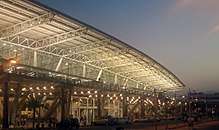
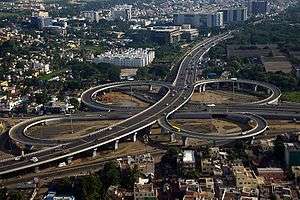

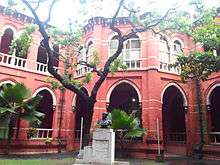
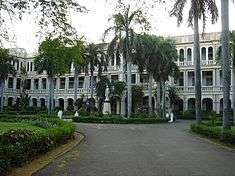
.svg.png)
